








BY DAVID SAFFER
“All hell will break out in the Middle East” if the hostages are not free by President-elect Donald Trump’s inauguration on January 20.
Trump pulled no punches in a direct warning to Hamas, who continue to stall a possible deal, at a press conference from his Mar-a-Lago resort in Florida on Tuesday.
“If those hostages aren’t back by the time I get into office, all hell will break out in the Middle East.”
Trump said, “It will not be good for Hamas and it will not be good for frankly anyone.”

Concluding his press conference, Trump, who spoke about a range of topics including on Greenland, Canada, Mexico, the Pana ma Canal and Russia, again called for the release of the hostages in Gaza.

said on Tuesday he hoped to have good things to report about the hostages.
for the Hostages and the Missing Brig.-Gen. (Res.) Gal Hirsch, included representatives from the US, Canada, Germany, Austria and UK.
“There is a major scar on our nation and the face of the earth,” said Herzog. “We want the hostages back home as soon as possible. It’s a huge task. We are calling on all parties to the negotiations in Qatar to move forward and end this huge tragedy.” He added, “This is something that should not be acceptable anywhere in the world, in modern day affairs, in human lives, in the international arena. The fact that you’re here is another


































BY DAVID SAFFER
History will judge the legacy of far-right Holocaust-denier Jean-Marie Le Pen who died on Tuesday aged 96.
The notorious far-right antisemitic politician, who founded the French National Front party (now National Rally) in 1972, infamously dismissed the Holocaust as a “detail of history” in 1987.
An unrepentant extremist on race, gender and immigration, Le Pen was repeatedly tried, convicted and fined over his comments about the Shoah. Disturbingly, he rewrote the parameters of French politics. A five times Presidential candidate, Le Pen lost the Presidential run off against Jacques Chirac in 2002 when opposing parties united to ensure a landslide against him.
President Emmanuel Macron diplomatically described Le Pen as a “historic figure of the far right” but added that “history will judge” his role in the country’s political life. Prime Minister François Bayrou offered a banal assessment that the former NF chief was “a figure of French political life” but there were damning reactions from other French politicians.
Interior Minister Bruno Retailleau wrote that “a page of French history had been turned”, Socialist Party spokesperson Arthur Delaporte said Le Pen’s death must “not exonerate the National Rally from the weight of his legacy: xenophobia, antisemitism, rejection of others”, Pierre Jouvet, also of the Socialist Party, cuttingly commented: “He was a racist. An anti-Semite. A colonialist. Nostalgic for the Vichy regime. An antifeminist... A repeat offender who founded the (National Front) with SS soldiers.”
La France Insoumise de facto leader Jean-Luc Mélenchon said the grief of loved ones could not erase the right to judge Le Pen’s actions as “unbearable”, observing: “The fight against the man is over. The fight against the hatred, racism, Islamophobia and anti-Semitism that he spread continues.”
Fellow party members Paul Vannier and Louis Boyard joined the vitriol against Le Len.
“Racism, hatred of Muslims and anti-Semitism are not polemics,” noted Vannier. “They are offenses punished by law.” Boyard added that Le Pen “deserves no tribute”.
French left politician and satirical Fakir magazine editor-in-chief François Ruffin noted: “A fascist from another era is gone. But he leaves behind some very contemporary heirs.
In the UK, Jewish groups joined the vitriol about Le Pen’s legacy.
A Campaign Against Antisemitism spokesperson said: “Le Pen had a history of minimising humanity’s darkest hour. As we approach Holocaust Memorial Day, we must always remember to take a stand against those who seek to erase the memory of those victims. As someone who all too proudly stood on the wrong side of history leaves us, we are reminded
again why it is so important to speak up for what is right.”
The National Jewish Assembly noted: “While Le Pen sought to champion France’s sovereignty and identity, his antisemitic outbursts and Holocaust denial undermined these efforts and disgraced his movement. The growing instability in the West demands political forces that unite around shared values and credible solutions, not those that revert to age-old prejudices. The political right must heed this lesson and focus on addressing the genuine challenges we face, radical Islam, unchecked immigration, and the erosion of Western moral foundations, without succumbing to antisemitism.”
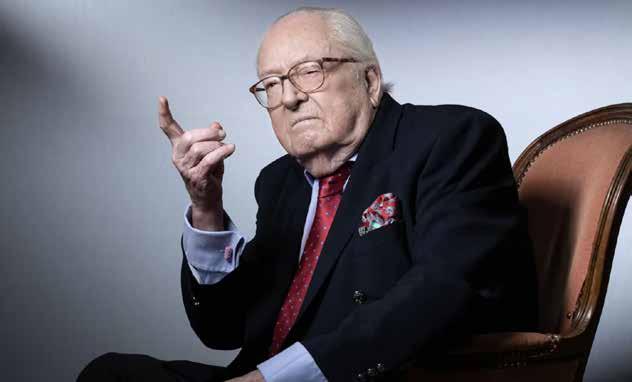
saying a Jewish singer who criticised his party, would next time be “put in the oven”.
Jonathan Metliss, Action Against Discrimination chairman said: “Le Pen’s antisemitism and Holocaust denial will not be missed nor forgotten. He repeatedly courted controversy and was denounced by his critics as a “right wing bigot”.”
France has the largest Jewish community in Europe totalling around 500,000 but antisemitism continues to surge. According to the Jewish Agency, 50,000 Jews have made aliyah since 2014, another 3,200 will join them in Israel this year, triple last year’s total.
Over 75,000 Jews were deported to Nazi death camps from France during World War II, 3,000 survived.
Le Pen was vilified in the Jewish world after his view on the Holocaust in September ’87.
“I ask myself several questions,” he said. “I am not saying the gas chambers didn’t exist. I haven’t seen them myself. I haven’t particularly studied the question. But I believe it’s just a detail in the history of the second world war.”
Representative Council of Jewish Institutions in France President Roger Cukierman, of the World Jewish Congress, labelled his remarks as a ‘detail’ in (Le Pen’s) “long career in the hate business”.
Le Pen was convicted and fined for contesting ‘crimes against humanity’ in France and eventually stripped of his parliamentary immunity as an MEP.
In 1999, he was fined by a German court for “minimising the Holocaust”. In 2009, the European Parliament denied Le Pen the right to chair the opening session of the assembly’s new term. Convicted in 2012, in France, after saying the country’s Nazi occupation had been “not particularly inhumane”, in 2015, Le Pen told a French TV interviewer he had no regrets over his gas chambers ‘detail in history’ view “because it’s the truth”. Le Pen was charged in 2017 for inciting hatred after
Le Pen’s daughter, Marine, who took over the National Rally party in 2011, attempted to distance herself, accusing him of reiterating Holocaust denial to “rescue himself from obscurity”. However,
in 2017, she was heavily criticised for stating France was not responsible for the deportation of Jews to death camps. Worryingly, Le Pen’s party won 34% of the vote in the first round of legislative elections last year. A coalition of left-wing parties totalled 29%, Macron’s centrist party, Renaissance sat third with 22%.


BY ADAM MOSES
Israel Defence Forces is conducting a manhunt for up to three terrorists behind a deadly terror attack in Judea and Samaria on Monday morning.
Prime Minister Benjamin Netanyahu has vowed to catch the killers and bring justice to the families.
Master Sgt. Elad Yaakov Winkelstein, 36, and school counsellors Rachel Cohen, 73, and Eliza Reiss, 69 were killed in the shooting near the Palestinian town of Al Funduq between Israeli settlements Kedumim and Karnei Shomron.
Israeli media reported two terrorists opened fire on a bus and three cars on Highway 55 before fleeing. It is believed two perpetrators from the Jenin and Qabatiya areas are known to Israeli forces.
Officials said there were no indications of an imminent attack.
Eight people on a bus were injured, including the bus driver, 63, who was seriously injured.
Winkelstein, a resident of kibbutz Ein HaNatziv and officer at the Ariel police station, is survived by his wife and two children. Winkelstein’s son was in the car during the attack and witnessed his father shoot at the assailants before being fatally shot. His funeral took place at Mount Herzl.

Cohen and Reiss, both Kedumim residents, were dedicated to the community. Cohen, is survived by her husband and five daughters. Reiss, a founder of Kedumim who worked in Karnei Shomron, was due to celebrate her 70th birthday next week.
Rachel’s daughter Naomi reportedly said that her mother “radiated simcha, chessed and positive energy”, adding, that her mother chose to see the good in her life and spent her life helping others.
Eliza’s son Yair, reportedly said: “She was a woman larger than life. Nothing stopped her. She had incredible willpower and determination that propelled her to accomplish great things in every area.”
Finance Minister Bezalel Smotrich, a resident of Kedumim, called for a reassessment of West Bank counterterrorism policies.
“Anyone relying on the Palestinian Authority for Israeli security must face the reality of terrorists massacring Jewish residents,” said Smotrich, who called for an emergency Cabinet meeting to combat terrorism in the area.

•








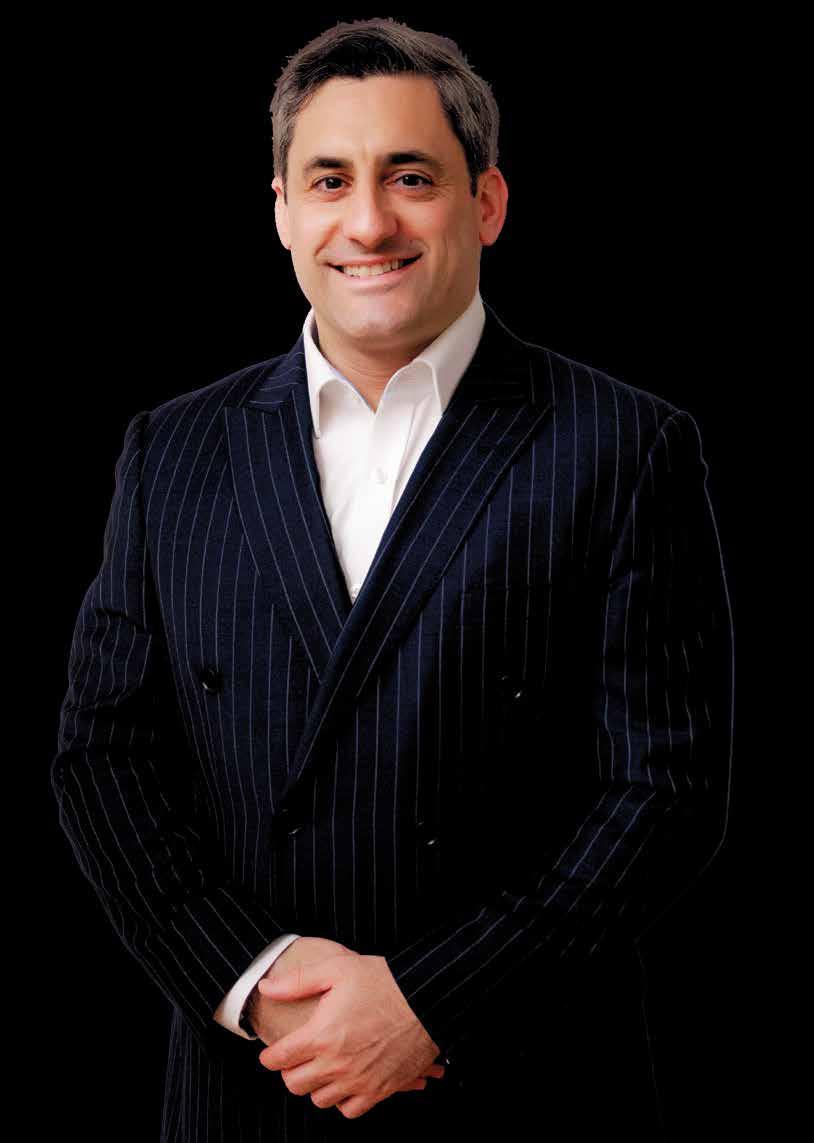




BY DAVID SAFFER
Three Israeli athletes are set to compete in the 17-day World Indoor Bowls Championships which starts in Norfolk tomorrow.
Daniel Alomin participates in the World Open singles, Amnon Amar and Itai Rigbi feature in the World Open pairs event in Hopton, Great Yarmouth that concludes January 26.
The World Bowls Tour had banned the trio following pressure by pro-Palestinian campaigners that forced another Israeli to drop out of a tournament in Scotland last November.
Rupert Lowe MP, Reform UKs Business and Agriculture spokesman, was “disgusted” the Israelis had been prevented from participating in Hopton.
Following the backtrack, he noted: “The Israeli team will be welcomed in Great Yarmouth, I wish them well for the event. The World Bowls Tour have made the right decision.”
The WBT has now offered an apology to the Israeli players and PBA Israel.
Banning the trio had not been their intention. The invitation was reinstated, WBT noted in a statement, after “exploring practical ways” with partner agencies to increase security.
“We found ourselves in a very difficult
position in relation to the security of the venue and to the competitors and other attendees,” the organisation explained.
“We are very pleased about being able to reverse the decision to withdraw the invitation which we regrettably felt compelled to take in all the circumstances. The sole consideration behind this difficult decision had been the safety and security of all participants, staff, and attendees involved in the tournament.
Following significant feedback and credible concerns regarding the potential risks posed to competitors we had felt it necessary to act responsibly, so to ensure the wellbeing of everyone involved.”
local police and officials. This is why the campaign to address and eradicate antisemitism in all sports must be sustained and aggressively fought. Let us hope that there are no further protests nor violence at sporting events where Israeli teams and players are involved. If so, local police must take appropriate action.”

Action Against Discrimination welcomed the WBT decision.
“The continuing demonisation of Israel and Israeli sportsmen in the sporting world is shocking and wholly unacceptable,” said Jonathan Metliss, AAD chairman. “Politics has no place in sport. This must be resisted at all costs by international sporting bodies, politicians,
BY HARRY SIMONS
King Charles has honoured Jewish community members for charitable, professional and voluntary work in the New Years’ Honours List.
There are knighthoods for actor and broadcaster Stephen Fry for services to mental health awareness, Jeremy Isaacs of the children’s charity Noah’s Ark and Loyd Grossman for services to UK heritage.
Tamara Finkelstein becomes Dame Commander of the Order of the Bath. Senior civil servant Michelle Dyson is made a Companion of the Order of the Bath.
Prof. Peter Sasieni is awarded a CBE for services to cancer early detection and prevention, Prof. Richard Susskind receives a CBE for services to Information Technology and to the Law.
Steve Morrison has been made CBE for services to the media and creative industries.
There are MBEs for Chai Cancer Care chair Louise Hager, Gesher School founders Ali Durban and Sarah Sultman, and
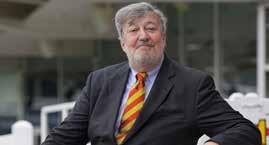
Philip Davis, founder and Chair of the Children’s Magical Taxi Tour, which has taken children from hospitals to Disneyland Paris for over 25 years.
There are accolades for Holocaust related work. They include MBEs for Holocaust survivor Dr Alfred Garwood, and Eleanor Angel and Frank Harding of the Association of Jewish Refugees trustees.
Dr Toby Simpson, Prof. Gilly Carr and Michael Livingston receive OBEs. Among other recipients, Harvey Rosenblatt of Nightingale Hammerson is awarded an MBE for services to Jewish community social care and Kids in Mind CEO Julian Margolin receives an MBE for services to Children Escaping Domestic Abuse and Violence.
Amanda Delew, Community Security Trust, is made an MBE for services to the community.
In political circles former Conservative Friends of Israel executive director James Gurd and Jewish Labour Movement national chair Mike Katz both receive an MBE.
Nicola Solomon will collect an OBE for services to literature and creative industries.
Evelyn Blumenthal, who volunteers at the Royal Free Hospital in London, and Liesel Carter, a supporter of the Holocaust Survivors’ Friendship Association, receive the British Empire Medal.
The full New Year Honours list for 2025 is on the government’s website.
and this choice reflects our commitment to protecting the Championships and ensuring they run smoothly for everyone involved. We remain hopeful that circumstances will allow us to welcome PBA Israel back to the WBT stage in the future.”
The WBT Board made its original decision to ban the Israelis following the Scottish International Open at West Lothian in November after Shalom BenAmi withdrew for ‘personal reasons’.
Ben-Ami’s withdrawal followed an online boycott campaign by The Red Card Group and Scottish Sport for Palestine. Campaigners hailed 4,000 petitioners and called for Israeli representatives to withdraw from the World Championships in Norfolk.
The WBT noted at the time: “This decision was not taken lightly and has been made in the best interests of the events success and integrity. Bowls is, and always has been, a sport that unites people
A Campaign Against Antisemitism spokesperson condemned the WBT: “World Bowls Tour says that bowls is a sport that unites people. But that apparently does not apply to the Jews, who are excluded. This decision is a disgrace to international sport and sends the message that racist intimidation works. Athletes should be judged by their skill, not their race, ethnicity or nationality. Unfortunately, that principle does not apply to Jewish athletes.”
The Board of Deputies said there was no justification for the “overt act of discrimination” against Israeli participants, who were excluded on the basis of their nationality.
Potters Resorts, who have hosted the world tournament since 1999, distanced itself from the furore.
A spokesperson said: “While Potters Resorts is proud to host the event, we are not involved in decisions regarding player participation and remain a neutral venue for this prestigious competition.”
Starting 2025 on a high, Jewish Futures has been investing in its 100 plus staff and educators from around the country, with a week filled with strategy and team building.
Educators working across 65 schools, 23 campuses, six communities and with young professionals across the UK, have all participated in immersive and dynamic learning. From ‘The Apprentice’ and ‘Dragon’s Den’ style days to interactive workshops and inspirational talks, all sessions were designed to further
dynamic Jewish Futures organisations, shared knowledge, role played complex scenarios and received training on topics from AI, to how to live and communicate core values, to leveraging technology for Jewish education.
With an 18% increase in unique participants last year across the Jewish Futures family, and with over 20,000 young jews being reached in person, Rabbi Naftali Schiff, CEO of the Jewish Futures recognizes the need to equip all leaders and teams on the ground with the ability to deal with the questions Jews have in Britain today.

develop creativity, professionalism and innovation.
Employees from the network of 11
“The energy, excitement and enthusiasm of our disparate teams ranging from Gift to JRoots to Aish and Chazon has been electric. These educators and leaders are rejuvenated to add light to an oft lonely and disengaged world sometimes actively antagonistic towards Jews. This annual training week has become a crucial and ever refreshing reset, regroup and strategic rethink across all of Jewish Futures. It’s wonderful to be a part of such “serious, fun!”



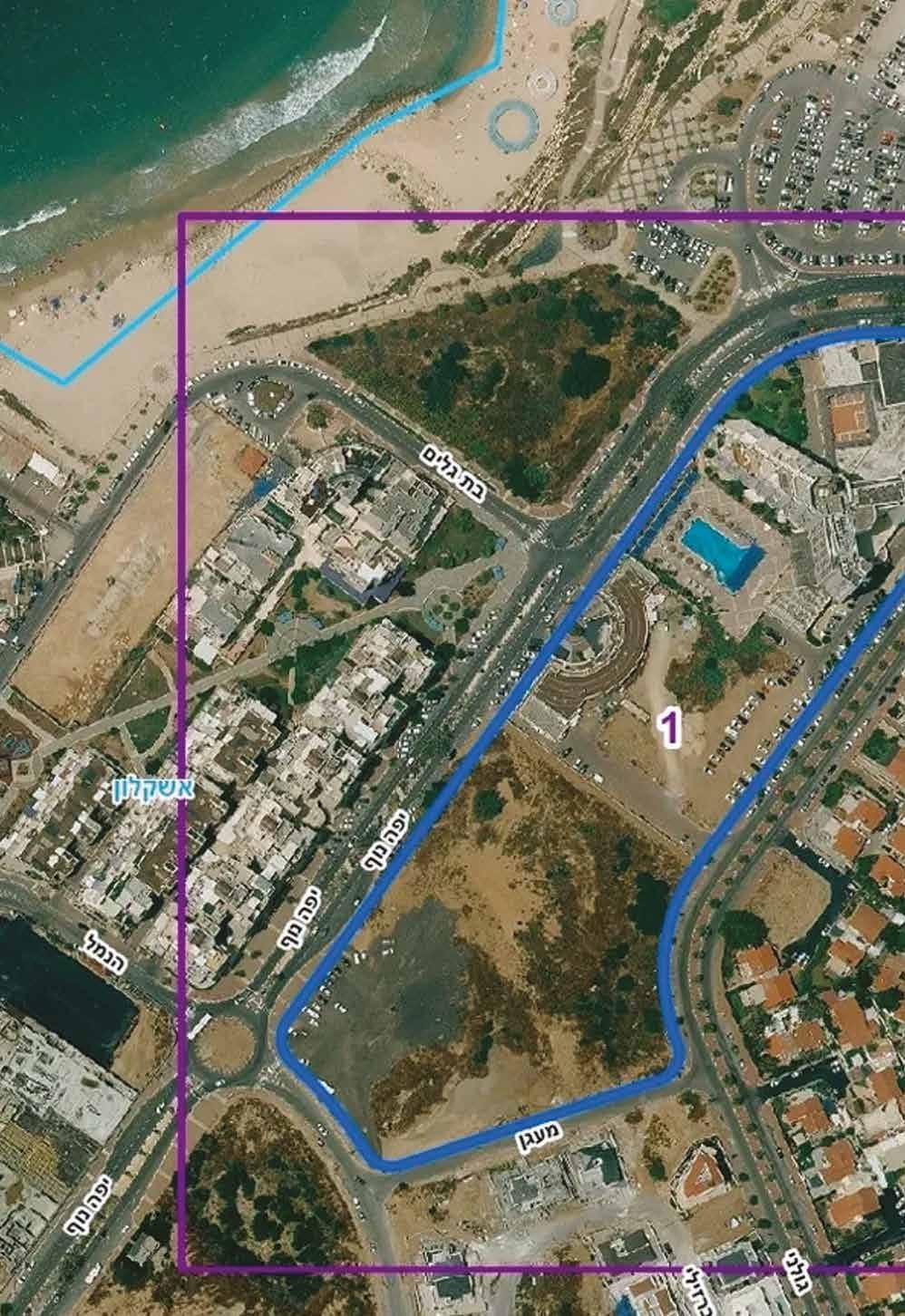

BY DAVID SAFFER
Former US President Jimmy Carter, who died aged 100 in his hometown of Plains, Georgia last week, has been remembered for his pivotal role in the Camp David Accords at Maryland in 1978.
Post-presidency, the Carter Centre promoted human rights resulting in a Nobel Peace Prize in 2002. But the 39th US President, and longest living, who served from 1977 to 1981 at the White House, has received praise and criticism in Jewish quarters, particularly for his legacy on Israel.
Going back near five decades ago Carter brought together Israeli Prime Minister Menachem Begin and Egyptian President Anwar El Sadat for historic talks. Begin, controversially for many Israeli observers, bowed to pressure and agreed to withdraw from the Sinai Peninsula, which Israel Defence Forces captured during the 1967 Six Day War. In return Egypt recognised Israel and ended its economic boycott. The landmark accord continues to be debated.

Prime Minister Benjamin Netanyahu diplomatically recalled Carter’s role in the first Arab-Israeli peace treaty that continues to offer “hope for future generations”.
President Isaac Herzog said he had thanked Carter in recent years for his historic efforts.
“He forged a peace between Israel and Egypt that remains an anchor of stability throughout the Middle East and North Africa many decades later,” he observed.
The American Jewish Committee said in a statement: “While AJC had some profound disagreements with President Carter about the Middle East, especially in the decades after he left the White House, his key role in creating the historic 1979 Egypt-Israel peace treaty will always be remembered with appreciation. The first peace treaty between Israel and an Arab country came about in large measure due to Carter’s personal intervention in the process.”
The APC added: “Carter’s support for the freedom of Jews in the Soviet Union, signing of legislation in 1977 banning American corporations and individuals from complying with the Arab boycott of Israel, and establishing in 1978 the President’s Commission on the Holocaust, which led to the US Holocaust Memorial Museum in 1993, have had decisive, positive long-term impact.”
Chabad-Lubavitch, however, commented: ‘His position towards Israel during his presidency severely hampered its ability to defend itself, and his post-presidential Middle East activism led many to question Carter’s affinity for the Jewish people in the first place. Nevertheless, as the Rebbe, Rabbi Menachem
M. Schneerson, highlighted in particular in the aftermath of, and in reference to, Carter’s 1980 loss, ‘Torah bids us to be grateful [and] to acknowledge those good things which were done’”.
The Jewish Democratic Council of America concentrated on the Accords.
“For this historic diplomatic achievement of the first peace agreement between Israel and its neighbours, we and all Americans who value Israel’s safety and security are grateful,” they said.
“We will remember President Carter as an honest, principled leader who loved America.”
Carter’s Israel legacy received criticism, especially after his book ‘Palestine: Peace Not Apartheid’, was published in 2006. Allegations of antisemitism were labelled against the former president.
The APC spoke about strained relations with the Jewish community, noting: “AJC considered the work a distorted account of the Middle East, especially the history of the Israeli-Arab peace process.”
The National Jewish Assembly were more hard hitting, stating that Carter’s book “grotesquely legitimised violence against Israelis”.
A spokesman observed: “While Carter will be remembered by some for his humanitarian work, his legacy is irrevocably stained by his unrelenting bias against Israel and his enabling of terrorism. From his catastrophic mishandling of Iran, which paved the way for the world’s largest state sponsor of terror, to his book, Carter consistently undermined peace and emboldened those who sought Israel’s destruction. His words and
actions will remain a chilling reminder of how political naivety and antisemitic prejudice can fuel conflict rather than resolve it.”
NJA added: “Carter’s presidency and post-presidency were marred by a troubling pattern of appeasement toward Islamist regimes and a blatant double standard when it came to Israel. His willingness to meet with and excuse the actions of terror-linked leaders, while holding Israel solely responsible for the region’s lack of peace, not only ignored reality but actively undermined global efforts for stability. Carter’s record is a stark warning against the dangers of moral equivocation and the harm caused when leaders fail to stand resolutely against terrorism and antisemitism.”
Jonathan Metliss, Action Against Discrimination, recalled that Carter was a “constant critic” of Israel and its treatment of the Palestinians.
He added: “In recent years, the Carter Center upset Israelis by calling for a ceasefire days after the Hamas attack of October 7. The jury is out if Carter was a true friend of Israel and the Jewish people.”
Former US presidents will address the state funeral of Jimmy Carter in Washington DC today.
President Joe Biden said America and the world had lost an “extraordinary leader, statesman and humanitarian”. President-elect Donald Trump noted that Carter did everything to improve the lives of all Americans. “For that, we all owe him a debt of gratitude,” he added. Carter’s Israel legacy is flawed, but it is
noteworthy that his passing on the fifth night of Chanukah is a reminder that he was the first American president to light a national menorah in Washington, DC.
The symbolic lighting, now an annual tradition, came in the midst of the Iran Hostage Crisis in 1979.
Carter kindled the lights with ChabadLubavitch emissary Rabbi Abraham Shemtov, who launched the national event in Philadelphia in 1974, a year after the Rebbe launched his Chanukah awareness campaign.
Carter said the shamash candle’s light does not diminish and called for prayers for people around the world whose lives might be in danger. Recalling the event in the Washington Post in 2020, he said: ‘I hoped this would help elevate this Jewish holiday into one all Americans would recognise. I am grateful this annual event has grown much larger over time.’
During Carter’s tenure, he also signed into law Education Day USA in 1978, which takes place on the anniversary of the Rebbe’s birth. Every US president has designated the day to educational awareness.
Carter, born October 1, 1924, began his political career in 1963 as a Georgia state senator then governor in 1970. After defeating President Gerald Ford in the presidential 1976 election, Ronald Reagan triumphed in 1980. He is survived by four children, 11 grandchildren and 14 great-grandchildren. Former First Lady Rosalynn, and one grandchild preceded his death.

Please note: The views of the letters do not necessarily reflect the views of this newspaper. Letters may be edited and publication is at the discretion of the editor.
A new year, though I’m afraid it’s nothing new at our national broadcaster. After it was virtually forced into an apology for its handling of Rabbi Gideon Sylvester in a tripartite interview of faith leaders over the festive period, the BBC has continued to put out highly skewed coverage of the ongoing war Israel faces on multiple fronts.
Many returning to work this week may have seen the following article pop up on the BBC homepage during their commute on Monday. After an uncharacteristically quiet period for breaking news on this subject, the headline was bound to capture interested readers’ attention: “Hamas lists 34 hostages it may free under ceasefire”.
In the article, we then read that a senior Hamas official had shared with the BBC itself, a list of hostages that the “Palestinian group” claimed it was willing
to release in the first stage of a potential ceasefire deal. For context, this issue has been the subject of prolonged fierce dispute during negotiations, as Hamas remains unable to cough up a proper list (no wonder, given that by its own repeated admission, Hamas does not know where all of the hostages are).
Forget that the words “Palestinian group” could have meant anything herea group of Palestinian schoolchildren on a field trip, a Palestinian cooking group, a Palestinian reading club or yoga classrather than the name of a proscribed terrorist organisation the BBC still struggles to label properly. Or that this proscribed terrorist organisation went to the *BBC itself* with this list, despite it being Israel to whom Hamas must provide the list directly, as a prerequisite to any deal.
The biggest problem, as has often been the case with these articles, is that crucial context and countervailing detail is left to later on, when most readers have finished reading, and is not nearly given the weight it deserves. The article waited
The National Jewish Assembly (NJA) welcomes the UK government’s recent condemnation of the Houthi missile and UAV attacks on Israel, as well as its acknowledgment of the broader threat posed by Iran-backed Houthi aggression in the Red Sea. While the NJA applauds the government for finally taking a stand against this escalating menace, it must be noted with regret that it has taken many months since the Hamas atrocities of October 2023 for the UK to recognise the dire consequences of inaction against Iranian proxies in the region.
The Houthis’ blatant targeting of international shipping, civilian aviation, and regional stability has long been a direct threat to global commerce, human life, and UK interests. The NJA is encouraged to see the UK government belatedly admit that allowing Islamist terrorists to shut down vital shipping lanes and threaten international peace is neither sustainable nor acceptable.
Gary Mond, NJA Chairman, stated: “It is reassuring to see the UK government finally awaken to the reality that hard action is needed to curb the Houthi threat.
for its seventh paragraph - notably after shoehorning in a completely unrelated point on Israeli airstrikes - to cite the objections from the Prime Minister’s Office. These were that, not only had Hamas *not* provided Israel with a list of hostages, but that the list given to media outlets like this one was actually passed *from* Israel, to intermediaries, as early as July last year. Nor had Hamas ever once since confirmed the status of those hostages or others - again, a pre-requisite to a deal.
Indeed, these vital signs of life are still being savagely drip-fed by Hamas to the hostages’ families and to the Israeli public, a form of unspeakably evil, psychological torture. And that’s where the BBC’s article takes us next - to Hamas’s video of 19-year old Liri Albag, providing a crucial sign of her life in the most harrowing of ways. Except the article doesn’t even suggest what all of us who have watched the video can see - that Liri is, of course, speaking under the highest duress. Instead, it simply tells us that the video shows “Liri Albag urging her government to make a deal”, as if it were of her own free will.
Fine, you might say - but the BBC cannot independently verify these points. Except that is precisely what the BBC has been at pains to do when dealing with Israeli claims (not that these should not be independently verified, of course).
Replete throughout BBC articles over the past 15 months has been the overt use of quotation marks to claims made by Israel, repeated instances of the sentence “the BBC cannot independently verify” those claims, and the frequent drafting in of BBC Verify to scrutinise them ever
further.
But here, the BBC can’t even state that it is unable to independently verify a list of hostages, supplied to it not by other media outlets or international bodies, but passed directly into its own hands by a terrorist group.
Even Sky News - who have impressed very few in the Jewish community especially in recent weeks but whose coverage has generally been more defensible than the BBC - covered this story with the nuance and caution it deserves. Sky’s headline provided a fair reflection of the competing claims, using quote marks to qualify Hamas’s actions: “Hamas ‘approves list of 34 hostages to be returned’ - but Israeli PM’s office contests claim”.
The PM’s objection also appears as soon as the second paragraph in Sky’s article - and in the fourth and fifth, which cover the video of Liri Albag, Sky do not hesitate to clarify that she “speaks under duress”. Even if Sky cannot honestly know this for certain, the article at least had the decency to add in the claims of duress by the people who know Liri best - her own family, who said that “her severe psychological distress was evident” and that this was “not the daughter and sister we know”.
The BBC’s piece, by contrast, reads like an uncritical repetition of claims and quotes from Hamas officials, one of whom was “speaking on condition of anonymity”. And remember - it was not Sky News who were handed a list of hostages directly by Hamas.
Naji Tilley, London NW4
Iran’s ongoing use of proxy forces to destabilise the Middle East has far-reaching consequences, including the emboldening of terrorism and the endangerment of global trade. The UK’s recent strikes and condemnations are a step in the right direction, though long overdue.”
While the UK government takes these necessary steps abroad, it must also act decisively at home. The NJA calls on the government to identify, arrest, and prosecute Houthi supporters within the UK. These individuals, who are often embedded within the pro-Palestine movement, represent a significant threat, actively enabling and propagating extremism on British soil. Turning a blind eye to domestic supporters of such terror groups undermines efforts to combat the global reach of Iran-backed proxies.
The NJA urges the UK government to remain steadfast in its commitment to addressing Iranian-sponsored terror and its proxies, ensuring the safety of civilians, the free flow of international trade, and the preservation of peace and security both globally and within the UK.
Jewish Women’s Aid (JWA) is horrified by the release of video footage showing Liri Albag, a 19-year-old Israeli who has been held hostage in Gaza since 7th October 2023. Our thoughts are with Liri, her family, the remaining 99 hostages and all those affected by this ongoing crisis.
We call upon national and international women’s rights organisations to speak out – silence in the face of such suffering risks normalising the mistreatment of all women during times of conflict.
Sam Clifford, CEO of Jewish Women’s Aid, says: “The distressing sight of Liri Albag, released in a video by Hamas, shows the devastating impact of the past 15 months on this 19 year old woman, both physically and mentally. We continue to hope that the ongoing ceasefire talks will lead to the release of all 100 hostages and an end to the violence in the region.
“We call on organisations, politicians, and leaders worldwide to demand justice for all women - including Israeli womensubjected to violence and captivity. Turning a blind eye to the mistreatment of women in conflict only helps the perpetrators of violence. She adds: “To any Jewish woman living in the UK affected by this crisis, or by abuse at home – Jewish Women’s Aid is here for you.”


For the first time ever, LSJS invites you on a four-day journey to Poland. Together, we’ll visit beautiful synagogues, historically important Chassidic sites and discover the joy and beauty of modern Jewish life in Poland. Our four-day itinerary also includes lesser-known locations and offers a deeper dive into the themes, stories and legacy of Jewish life.
Before we even set foot in Poland, two pre-trip preparatory classes will provide essential context, helping you visualise centuries of joy, beauty and resilience and prepare to honour the memory of the six million. With this foundation, you’ll arrive ready to fully absorb and connect with the experience.
Our spaces are limited, so secure your place now and join us for an unforgettable experience that will stay with you forever.



An immersive educational experience exploring Jewish life, art, memory and history before, during and after the Holocaust For more information & to reserve your place email lsjsadmin@lsjs.ac.uk






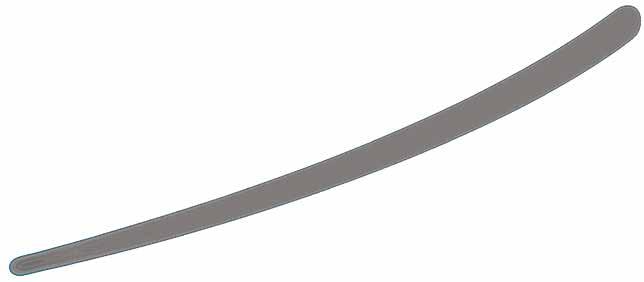
The passing of Joseph Lewkowicz, a Holocaust survivor from Poland, who left this world on the second night of Chanukah in Arzei Habira, Yerushalayim, at the age of 98, leaves the world bereft of one of the last remaining witnesses of the full reality of the Holocaust.
Born in the village of Dzialoszyc, Galicia, Joseph moved to the vibrant Jewish community of Krakow at the age of eight. From the time of his bar mitzvah, he endured the harrowing trials of the Holocaust in Poland. Six years of profound loss, deprivation, and brutality never diminished his unwavering faith, trust, and joy for life.
Joseph’s terrible experiences included brutal incarcerations in infamous concentration camps including Plaszow, Auschwitz, Mielec, Amstetten, Mauthausen and Ebensee. He was the sole survivor of a large pre-war family, losing 150 relatives, most of whom were murdered in the notorious Belzec Death Camp in 1942. Joseph stood as one of the last living witnesses of the She’eiriss Hapleito, embodying the memory of both the vibrant world that was and the profound destruction of Polish Jewry.
For over 30 years, I have dedicated myself to capturing the spiritual legacy of survivors like Reb Yosef z”l. I have spent countless hours interviewing, filming, and documenting his remarkable experiences, values, and life lessons. I had the privilege of introducing him to JRoots, allowing his story to reach thousands of people from diverse backgrounds. His compelling narrative has been shared through numerous press interviews, television appearances, and many non-Jewish journalists. The international interest in his life led to the publication of an international bestseller by Penguin, translated to 12 languages, as well as a the production of a documentary by JRoots, “The Survivor’s Revenge”, both of which have garnered significant worldwide acclaim.
Having met and interviewed many survivors, what immediately captivated me about Reb Yosef was his remarkable memory, energy and his ability to articulate his experiences even into his 90s. I recall an afternoon when we filmed at Plaszow, the site where he narrowly escaped death at the hands of the infamous Amon Goeth. On that sweltering summer day, despite my concerns for his well-being, Joseph insisted we press on, saying, “Naftuli, we’re here to work. We have a job to do. Let’s keep going!” His tenacity was inspiring, as we crisscrossed Poland and Austria at a pace that would exhaust much younger individuals.
At his levaya, my friend and partner in JRoots, Rabbi Zvi Sperber, spoke of how Reb Yosef would often be found awake and reciting Tehillim at 6 am, even in his later years. Despite his declining health, his thoughts were consistently on others. He remembered the names of those praying to find shidduchim, young mothers praying for children and those in need of healing, displaying a genuine care for all those around him. Many elderly
individuals understandably become preoccupied with their own health challenges, Reb Yosef’s constant concern for the broader community was remarkable. Reb Yosef faced significant physical pain throughout his life, including severe back trouble from an injury sustained during forced labor in munition storage tunnels at the Ebensee concentration camp. Yet, when he would talk about his pain it was very brief, before returning to the task at hand. Even when diagnosed with a terminal illness, his first words to me were, “Naftuli, we’ve done some good work together, but we’ve only just started. Promise me you’ll continue! So many young Jews don’t know who they are. We must teach them. We must show them. You must keep going…”
Yosef’s youth was abruptly interrupted when, in 1939, during his bar mitzvah year, he was forced into labor by the Nazis to plow over the old Jeruzolimka Jewish cemetery in preparation for the Plaszow concentration camp. He described the horrific scenes he witnessed, collecting the remains of the deceased. Unbeknownst to him, he and his father were already the only surviving members of their family, all murdered in Belzec Death Camp. His father was later murdered in Plaszow.
In Plaszow, Yosef managed to gain favor with the head kapo,Wilek Chilowitz, who would sometimes give Yosef a little extra food in exchange for shining his boots. Chilowitz would actually save his life from the hands of the infamous “Butcher of Plaszow,” Amon Goeth.
Goeth was the camp’s commandant, infamous for his brutality and random murder sprees. Reb Yosef said that Goeth would kill people for looking him in the eye, or for walking too slowly. On one occasion, Reb Yosef remembered, Goeth pulled a prisoner named Shlomo Spielman out of a line-up, said in German, “I cannot take it that Jew looks so handsome,” and put a few bullets into him on the spot.
Reb Yosef himself came close to being killed by Goeth in Plaszow. On a work detail one day, he was perched at the top of a column whose bricks and ironware were to be dismantled and shipped back to fuel the German war effort. Goeth came by with his two huge killer dogs and watched as Yosef dropped a dislodged brick down to his friend, to be placed in a wheelbarrow. Seeing Goeth and the dogs there, his friend got so nervous that he dropped the brick. Goeth immediately drew his gun and shot the fellow, then ordered Yosef down from the column. Reciting Shema as he followed orders, Yosef saw Goeth brandish his revolver to finish him off.
Reb Yosef had no memory of what happened next, but what he did remember is that he woke up a few days later covered in cuts and bruises. Chilowitcz, it turned out, saved his life by beating him unconscious and then having his limp body dragged away, telling Goeth, “Save your bullet, he’s already finished.”
I witnessed a rare display of
spontaneous anger or perhaps frustration from Reb Yosef when we stood filming at the bottom on the notorious Stairs of Death, 186 steep steps at the foot of the stone quarry Winer Graben quarry at Mauthausen concentration camp. He gazed in disbelief at the cruelty and torture he both experienced and witnessed at that very spot. He described how the starved, emaciated and bedraggled inmates were forced to carry huge rocks on their backs up the steps. Steps that he had witnessed being awash with the blood of the innocent who would inevitably topple over in exhaustion, causing a cascade of human skeletons to tumble down behind them, crushing more and more as they fell.
I don’t think I ever saw Yosef Lewkowicz get annoyed or frustrated – he was the calmest of men, despite everything he went through – but as we stood there, Reb Yosef bent down, picked up a rock, and threw it full force at those accursed steps.
An hour later, we stood inside the camp of Mauthhausen, peering out over the quarry. I asked him if there was anything his parents taught him that kept him going through six years of sheer brutality and depravation. He said that his mother taught him a phrase in Polish that he always recalled in the camps: “Na grzecznowski nikt nie traci-- be nice, be fine, be polite, be a mensch, and you’ll never lose.” (Even today, his children Ziggy and Sheila can rattle it off in Polish.)
Reb Yosef was 19 when he was liberated at the Ebensee concentration camp in Northern Austria in May 1945. While we were filming together in 2019, Reb Yosef made the brachah “She’asa li neis bamakom hazeh” by the gate of the camp.
In the aftermath of the war, when it became clear he had no family left, instead of immediately moving on to build his own future, he said he was determined to do something for his people. After remembering what his Father had told him that many Jewish families handed over babies and toddlers to their gentile neighbours for safekeeping “until they returned”, he resolved to save those Jewish children. He made his first mission to repatriate young Jewish children working tirelessly from out of the DP camp in Bad Ishel Austria. He was in constant contact with Yitzchak Refael and Elazar Ungar of the Jewish Agency based in Paris and under the guidance of them Chief Rabbi Herzog. He related how he managed to skillfully persuade the new communist authorities to equip him with a small armed force in order to “reunite displaced families” and how altogether approximately 600 Jewish children were gathered at a hastily formed rehabilitation centre in Rabka- Zdroj. They then were gathered in Trieste and from there the bricha organised their journey to Palestine.
This an untold story of heroism, for which Yosef Lewkowicz was never truly recognized. At some point, his children suggested he look up those war orphans and re-meet them, but he said he wasn’t interested. He was truly humble and
never felt like he deserved the credit. When people described him as a hero he would reply that he was a zero. He was always simply single-mindedly focused upon the task at hand.
His second self-imposed mission when the war ended was to work with the US military police and CIA in order to track down some of the major SS, who were hoping to disappear among the mass of regular Wehrmacht soldiers. He was a good candidate for the mission, as over the last six years, he’d had first-hand encounters with some of the Nazis the Allies were trying to find.
Working again out of the DP camp in Bad Ischl, he painstakingly searched for months. There were six primary people on his list, including Mielec commandants Julius Ludolf and Otto Streigel, Mauthausen’s Johannes Grimm, Ebensee “hospital” director Hans Kreindl and Amon Goeth. Yosef would eventually testify against each of these in the famous War Crimes trials.
He knew that Goeth had been arrested, so he set about combing the prison camps in search of him. At a prison camp at Dachau, only months after the war ended, a German Wehrmacht officer finally directed him to a man in his command who he didn’t recognise. At the far end of the camp, lying face down, for the second time, he came face-to-face with Amon Goeth. He took him into special custody and travelled with him to the famous Landsburg prison for interrogation. He would recall that Goeth was a shadow of his former self but would not for a moment admit or recant his bestial crimes.
Yosef’s relentless pursuit of justice was a testament to his character, as he believed in upholding values of humanity and decency even in the face of profound cruelty. Goeth was eventually hanged for his crimes in Poland in 1946 not far from the scene of his heinous crimes.
I had the privilege of knowing Reb Yosef and spending many hours with him. The first time we met he immediately invited me to make a Lechayim. He loved a shtikel herring and a l’chayim, and whenever I visited him, the ritual became the same. “Naftuli, before we talk,we must make a l’chayim!” I mention this because for me Reb Yosef Lewkowicz’s l’chayim was no regular “cheers!” His l’chayim resonated with the ultimate survivor’s revenge -- of seeing doros yesharim living and learning Torah, especially in Jerusalem. He was pained by the scourge of assimilation and was always happy to address student groups organized by Aish HaTorah, Machon Yaakov, Senters and others, sharing with them a passionate, unabashed commitment to Torah and mitzvos and their relevance in the modern world.
With his passing he commanded each of us to live meaningful, contributing proudly Jewish lives- L’chayim!” Yehi zichro baruch.
Rabbi Naftali Schiff CEO, Jewish Futures
BY THE NATIONAL JEWISH ASSEMBLY
The hosting of Majed al-Zeer, a man accused by the US Treasury of being “a prominent international financial supporter of Hamas,” in the hallowed halls of the UK Parliament is not just an insult - it is an outright scandal. This is not simply a matter of poor judgment by Leicester South MP Shockat Adam, who proudly chaired the event. It is a glaring example of how the Overton Window, the parameters of acceptable social discourse, has shifted to accommodate voices that, only a few years ago, would have been unequivocally condemned. The fact that al-Zeer, linked to a proscribed terrorist organisation, was given a platform to spout his rhetoric within our democratic institutions speaks to the growing moral decay infecting British politics.
Hamas is not an ordinary political movement. It is a proscribed terrorist organisation under UK law, responsible for the murder of thousands, the indiscriminate targeting of civilians, and the systematic use of human shields. Its charter
calls for the destruction of Israel and the genocide of Jews worldwide. To associate with Hamas is to associate with barbarity. Yet al-Zeer, who allegedly plays a “central role” in Hamas’s European fundraising operations, was warmly welcomed into Westminster. This is not merely a lapse in judgment - it is a grotesque betrayal of British values and a slap in the face to the victims of terrorism.
Let us be clear: the Palestinian Return Centre (PRC), the organisation al-Zeer directs, is not a benign advocacy group. It is a well-documented Hamas front organisation, as identified by multiple intelligence agencies, including Israel’s Shin Bet and Germany’s interior ministry. The PRC’s activities are not about promoting peace or reconciliation; they are about legitimising Hamas’s agenda of destruction and terror. Their public statements referring to Hamas as a “resistance group” are not just euphemisms - they are explicit endorsements of violence.
The so-called “discussion” hosted in Parliament was titled “Defending Palestinian Rights: Humanitarian and Legal
Perspectives,” but make no mistake: it was an exercise in anti-Israel propaganda. The PRC and its ilk have mastered the art of cloaking their extremism in the language of human rights, exploiting Western guilt and naivety to further their agenda. This is not about justice or peace - it is about demonising Israel, legitimising terrorism, and normalising antisemitism.
The PRC and its supporters are not just content with poisoning public discourse. They are actively working to influence British politics. Pro-Palestinian activists, emboldened by events like this, are organising to sway elections and infiltrate key community spaces. This is not democratic activism; it is a coordinated campaign to destabilise our political system and turn Britain into a staging ground for extremist rhetoric and actions.
The broader implications of this incident are staggering. Hosting individuals with documented links to Hamas in Parliament not only legitimises their views but also emboldens their supporters. It shifts the narrative, making terrorism appear as a reasonable response to conflict and turning
the democratic state of Israel into a pariah. This is not just a betrayal of the Jewish community; it is a betrayal of every Briton who values democracy, the rule of law, and basic human decency.
This incident also highlights the unbridled antisemitism that has taken root within the pro-Palestinian movement. Let us not mince words: much of this movement is not about supporting Palestinians but about vilifying Jews. The chants of “From the river to the sea,” the glorification of Hamas, and the targeting of Jewish individuals and institutions reveal the true nature of this ideology. It is not a movement for justice but a movement of hate.
The time for polite debate is over. If we do not act now, the next time a figure like al-Zeer is hosted in Parliament, it will be too late. Britain must decide whether it stands for democracy and human rights or whether it will capitulate to the forces of hate and terror. For the sake of our democracy, our values, and our future, we must choose the former. And we must act - swiftly and decisively - to ensure that this betrayal is never repeated.

BY SHIRA JOSEPH
It’s January, and the air is thick with ambition. Resolutions are everywhere—promises to eat healthier, exercise more, or finally tackle that growing to-do list. I was recently told that 12% of all gym memberships are sold in January, I’ve also tried not to be too offended that my algorithm is nudging me toward healthier foods and even signing me up for diet plans!
Just a few weeks ago, I ran a corporate social responsibility day for one of the UK’s largest accountancy firms. There were 23 highly accomplished professionals in the room. I asked a simple question: “How many of you volunteer or donate money regularly?” Only one hand went up. It struck me how easily the busyness of life can push giving to the back burner, even for people who care deeply about making a difference.
This gap between intention and action isn’t uncommon. But the start of a new year offers the perfect moment to bridge it. A few years ago, I saw this first hand. Our volunteer coordinator was
away during the winter break, and I was managing new sign-ups. In early January, there was a sudden spike in registrations. When I called some of the new volunteers to ask what had prompted them to get involved, they told me it was part of their New Year’s resolutions – to make time for volunteering. These individuals had chosen to make giving their priority, and their decision became the foundation for countless acts of kindness. Many of them are still regular volunteers to this day. So, what if, instead of just focusing on improving ourselves this year, we resolved to make a difference for others?
What if we recognised that giving; volunteering, donating, or simply being kinder - is one of the most powerful forms of self-improvement?
At GIFT, I’ve spent over a decade immersed in the world of giving, and I’ve seen the incredible impact it can have. One story that has stayed with me is about a teenager who had recently passed his driving test and, within the first month, received two speeding tickets. His parents decided that a fitting form of rehabilitation for him would be to pledge two hours each week to delivering food parcels anonymously for
GIFT, Otherwise, they would stop paying for his car insurance. He was reluctant at first and quite upset about this threat. but over time, he began to understand the value of his actions. What started as a punishment turned into a meaningful experience, and he even inspired his friends to join in and help deliver too. That’s the power of giving: it changes you in ways you can’t predict.
At GIFT, we often talk about ‘the giving muscle.’ The more you work it by performing acts of kindness, the stronger the muscle becomes and the easier these actions feel. Just like those who look back a few months after joining the gym and see the progress they’ve made—weights seem lighter, muscles ache less—you realise you’re stronger and fitter. So too, with the giving muscle: if you donate to charity regularly, the act becomes easier. If you open your home and invite guests frequently, hospitality feels less like a chore and more like a joy.
The Jewish concept of hergel na’aseh teva—habit becomes second nature— teaches us that repeated positive actions shape who we are. By engaging regularly in acts of giving, we actually change ourselves in the process, consistent steps
in performing good deeds refine our character, making these acts an integral part of who we are. Just as physical exercise strengthens the body, the repeated practice of giving strengthens the soul.
This January, I challenge you: Make giving your resolution. Whether it’s volunteering once a month, setting aside part of your income to support those in need, or simply being more generous with your time and kindness, take that first step. You don’t have to change the world overnight—but you might just change someone’s world. And in the process, you’ll find that giving has a way of transforming you too.
Let’s make 2025 a year of giving, together. Who knows? It might just be the most rewarding resolution you’ve ever made.
Shira Joseph is extremely passionate about giving and Jewish education and has previously held roles in Hasmonean High School and St John’s Wood Synagogue. Shira has been working for GIFT Charity for 10 years and is currently the Programme Director responsible for overseeing many of the projects and activities that engage the community in acts of giving.


Louise Hager, Chair of Chai Cancer Care, has been awarded an MBE in the King’s 2025 New Years Honours, for Services to People with Cancer.
It is deserving acknowledgement of the immense contribution Louise has made to the Jewish community over many decades, with Chai Cancer Care supporting tens of thousands of cancer patients and their loved since its inception in 1990. The award also provides recognition to the two incredible women who started Chai Cancer Care 35 years ago and whose work Louise continues with such dedication and commitment. Susan Shipman, together with Louise’s mother Frances Winegarten z’l established Chai in response to their personal experiences. Both women lived through a cancer diagnosis, with Frances surviving for 26 years despite a very poor prognosis and Susan’s precious daughter Natalie z’l passing away just before her eighth birthday. Despite the love and support of family and friends, there was nowhere for them to go to in the community, to share the huge challenges they were living through, at a time when cancer was rarely acknowledged, let alone said out loud. They chose
to name the fledgling organisation ‘Chai ‘(the Hebrew word for ‘life’) with the aim to provide expert support and care not only for the cancer patient themselves, but also their family members.
When Susan moved to live in Israel, Louise picked up the baton and dedicated herself to developing the organisation. Starting in Frances’ bedroom with a single service, a telephone helpline, Chai now operates from a flagship centre in North West London and 10 satellite centres across the UK, providing 70 specialised services to over 4,500 clients aged from three years old to 99.
Lisa Steele, Chai’s CEO said, “We are all so proud of Louise for receiving this accolade. She has been an ever-present figure in Chai’s history and has overseen the organisation’s development and direction. Louise’s drive, passion and commitment inspires us all and I know that, for her, it will be as much for the Chai family as it is for herself.”
“It is a huge privilege to be part of this very special organisation and I feel extremely honoured and humbled to have received an MBE”, says Louise. “So much of what Chai has achieved over the
years is due to the strongest of foundations that my dear mother Frances Winegarten z’l and Susan Shipman laid, and this award is very much dedicated to them both. When Chai was established it would not have been possible to imagine how much impact the organisation would have on the Jewish community and beyond, and how it would be recognised as a model of supportive care nationally and internationally. I know that my dear mother, would be so proud of this accolade. But more than that, together with Susan, they would be even more proud of what Chai has become and the way that our community has changed its approach to cancer care and support. That Chai has been able to meet the relentless demand is because we have been blessed to have built a hugely dedicated and devoted team across the whole organisation, and to have the wonderful generosity and loyalty of our donors and the community who have walked by our side. This honour is much more than a personal

award. It is for everyone who has made, and continues to make, Chai the beacon of excellence that it is today.”
We are sure you will all join us in wishing Louise Mazel Tov on such a well-deserved recognition and let me take this opportunity to wish you all the best for 2025 and a Happy Chanukah.
Camp Simcha’s annual Children’s Retreat is an eagerly anticipated event for so many of the families the charity supports. For the children with serious health conditions, it provides four joy-filled, activity-packed days away from hospitals and treatments and for their parents it provides critical respite. But no child could have been happier to be there this year than seven-yearold Amelia Leigh, who had been in hospital up until just a few hours before the coach left for retreat. Her condition, colonic dysmotility with a stoma fitted and immune deficiency, puts her more at risk of catching a virus or an infection – and when she does her body goes into panic and she often ends up in hospital.
fluids – and it got to the day before and she got worse.
“Amelia misses out on so much because of her condition and she had been looking forward to this for so long.
“We had been talking to the doctors and nurses and many of them know Camp Simcha. Everyone was rooting for her but there was nothing they could do except hope that her body would start retaining the fluids and nutrients it was being given.

“She had been in hospital three times in three weeks, and the week before retreat was by far the worst,” explained her mum Ilana. “She went in the Sunday before but her body just could not get back to normal and wasn’t retaining any
“Miraculously on Wednesday night her body stopped pushing the fluids out; Thursday morning rolled round and the nurse dragged a doctor in the room to get her discharged at about 9am.
“She came home, showered and packed and was literally waiting by the door ready to leave.
“I wouldn’t have sent her anywhere else; if it had been with school or a friend I would not have allowed it, but I did because it was Camp Simcha and we trust them so implicitly and we know they give the most phenomenal care – not just the doctor and nurse on site but just incredible love, attention and care that is thrown at all of us whenever we do anything with
Camp Simcha.
“It was better than any medicine I could have given her at home. She went and she just lived her best life and it was just wonderful. I felt so emotional when she left because she so nearly didn’t make it and that would have been just another disappointment. But for once she got where she wanted to be.”
Amelia was one of 27 seriously ill children who joined the retreat in Northampton, experiencing four days of unadulterated fun and peer support, providing the entire family with a rare opportunity for respite.
Activities included themed arts and crafts, bag-printing, archery and climbing, a drumming workshop, Builda-bear, a glow party, talent competition and concert.
Ranging in age from seven to 18 years the children each had a dedicated volunteer, along with Camp Simcha staff, a doctor and nurse, and carers on site, ensuring parents could enjoy a true break knowing their children were in safe hands.
Ilana explained: “Amelia loved the freedom and the fun and having that one to one attention that is not linked to something medical, not linked to pain or negativity or medication, cannulas, blood tests. Camp Simcha just can’t do enough for these children.
“She was excited to see old friends and to make new
friends, but you can’t quantify how much it meant that she could actually go. It just made her world. She sat on the coach and she waved and the smile she was giving me… I just felt all was right in the world and that in turn just made me feel calm and at peace.”
Camp Simcha supports 1,700 family members each year through a bespoke package of care which also includes therapeutic arts, sibling groups, retreats, volunteers and counselling – ensuring Camp Simcha is there for parents, children dealing with serious illness and their siblings whenever they need.
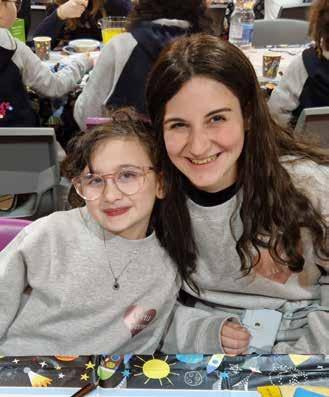

BY RABBI NAFTALI SCHIFF
Thursday 26th December, the final day of Chanukah, we gathered our incredible team of educators, rabbis, and visionaries at Jewish Futures for the start of a strategy and team-building week. In the spirit of creative disruption—and perhaps with a touch of chutzpah —I handed each rabbi a little flying pig gadget. You can imagine the puzzled looks as I announced: “hopefully you’ll never forget the rabbi who gifted you a pig on Chanukah—but that’s not the point! The message is clear: Pigs can fly!”
Why? Because those three words encapsulate something deeply Jewish: the audacity to believe in the impossible.
To some, ‘pigs can fly’ is just a whimsical idiom to describe an absurd impossibility. To us, it’s a challenge. It’s a provocation to stop saying, it can’t be done. In the Jewish world, especially in times like these, we’ve proven time and time again that what seems impossible is not only possible—it’s inevitable when we believe, dream, and act with conviction.
As David Ben Gurion famously said, “A Jew who does not believe in miracles is not a realist.” The survival of our people, let alone our disproportionate success and impact on the world, defies every law of history. By all rational accounts, we should have disappeared long ago. Yet here we are, thriving, innovating, and transforming ourselves and the world around us. How did we get here? Because deep in our collective consciousness is a belief that pigs can fly.
The story of the Jewish people is one of resilience in the face of overwhelming odds. When the Israelites were enslaved in Egypt, Moses could have despaired. Instead, he rallied a broken nation to believe in freedom and led them into history’s first recorded revolution. When the Babylonians destroyed the Temple and exiled us, followed later by the Romans too, our prophets and leaders could have resigned themselves to a permanent Diaspora. Instead, they spoke of hope, rebuilding, and a return to Zion—a dream that took thousands of years to materialize but it sure did.
The Crusades, the Inquisition, Pogroms, the Holocaust: each could have marked the end of our story. Yet with each crushing blow, the Jewish people refused to crumble. Instead, we re-emerged stronger, more determined, and more innovative. After October 7th and the unparalleled wave of anti-Semitism sweeping the world, the easy response would be despair. But that’s not who we are.
There’s a reason Jewish parents are
often stereotyped as ‘pushy.’ It’s not just about surviving; it’s about thriving. Deep down, we know we have a mission to fulfill. The Torah describes us as a mamlechet kohanim v’goy kadosh—a kingdom of priests and a holy nation. That’s not just a fancy title; it’s a job description. Our task is to be a light unto the nations, to improve the world, and to elevate humanity.
This calling requires us to dream big. It’s why we excel in fields as diverse as science, medicine, business, the arts, and philanthropy. It’s why our community values education so highly. Aspiration is not just cultural; it’s almost encoded in our DNA. We’re not content to survive — we’re driven to transform.
At Jewish Futures, long ago, we adopted the mantra that ‘pigs can fly’ partly so as to maintain our informal, almost cheeky persona, but also because we’ve seen it happen. Time and time again, we’ve been told something can’t be done, only to prove otherwise. Young Jews are disillusioned? Let’s create programmes that reignite their passion. High Holidays are boring? Let’s make prayer inspiring! Seder Night is pat? Let’s bring compelling educational fun in a box to all. Israel is the only educational destination? Let’s craft powerful immersive experiences elsewhere too. Charitable coffers overcommitted? Let’s teach the younger generation to become true givers!
Not every idea has wings, but the ones that do often soar higher than we ever imagined. And we’re not alone. Across the community, other fresh-thinking initiatives remind young Jews that Judaism is vibrant, relevant, and full of possibility. Together, we’re showing that being Jewish means knowing pigs can fly.
The Torah and rabbinic tradition are full of examples that encourage us to believe in the impossible. The first Jew, Avraham led a tiny band of men opposing the armies of five Kings in the knowledge that something miraculous would happen. The cataclysmic splitting of the Red Sea happened only when one man, Nachshon ben Aminadav stepped into the water, trusting that it would part. Esther approached King Achashverosh displaying the deepest trust that the pending destruction of her people would certainly be reversed. The Chanukah story is based upon 13 Hasmoneans having the strength of their conviction to take on the mighty Greek Empire! Rabbi Meir Shapiro, the famous founder of the pre-War Lublin Yeshiva explained that the first Jew, Avraham set the scene for us all. When Hashem promised the hitherto childless Patriarch a nation as numerous as the stars of the heavens, he then told the stunned Avraham to step outside his tent and told him that in the same way as you are unable to count the stars, so shall be your progeny.
Rabbi Shapiro explained that Avraham began counting and that’s why he was the
founder of the Jewish people! On a personal level, a lesson I carry with me from my army service 40 years ago with the IDF is “ein davar lo yachol, yesh rak lo rotze” There’s no such thing as “I can’t!- there’s only I don’t want to!” Herzl famously coined the phrase “im tirzu- ein zu aggada- if you will it, it is not a dream!” And after the incredible miracles we have all witnessed of late I would add- if God wills it, it happens! Hashem can do anything. The extent to wish we believe that as a reality, nothing is beyond our achieving.
Our community faces significant challenges: apathy, disillusionment, and an immediate lack of connection among young Jews. It’s easy to say, “That’s just the way things are.” But that’s not the Jewish way. Our history, faith, and values demand that we confront these challenges with creativity, energy, and optimism. We must remind our young people—and ourselves—that Judaism is a wellspring of inspiration, not a relic of the past. It’s a tradition that has always dared to dream and make those dreams a reality.
As a community, let’s commit to turning
the “can’t” into “can do,” the “maybe” into “yes,” and the “improbable” into the “inevitable”. Let’s teach our children not to fear failure but to embrace the power of possibility. Let’s embody the spirit of last weeks Chanukah, where a small band of Jews defeated a mighty empire and a tiny jar of oil burned for eight days.
The next time someone says, “That’s impossible,” smile and say, “Not for us.” Because we are the people who know that pigs can fly.
Shabbat Shalom.

///What3Words is a geocoding system that has divided the world into a grid of 57 trillion 3-by-3 squares, each of which is identified by a unique three-word address. In this column, Rabbi Naftali Schiff reflects upon three words each week, relating to core issues of the day.
Rabbi Naftali Schiff is the Founder and Chief Executive of Jewish Futures

In the depths of a dark and cold December evening, brightness and warmth shone from North-West London this Chanukah. Over 200 young professionals joined Ta’amim and Aish UK, both part of the Jewish Futures Family, and Moshe House Camden to mark the 5th night of Chanukah last Sunday, 29th December, with a globetrotting event that transported guests from Jewish Futures’ newly opened Hub on Brent Street to a twofloored ‘Chanukah House of Fun’. Floor one paid homage to all things Americana, with a mix of arcade games, diner-inspired food, bountiful doughnuts and a customise-your-own Chanukah jumper station, whilst mesmerising flair
barmen kept spirits high and entertained the guests with their skill.
Upstairs, participants found themselves in Israel, celebrating a night at The Shuk, with delicious falafel and shawarma-topped hummus bowls, a beach bar reminiscent of Tel Aviv and a surf simulation station - adding a warmer feel to a cold winter night.
And while partygoers were certainly in a festive mood, there were poignant reminders of the troubled times we are in. Attendees were invited to write a message of hope to the families of Israeli hostages on a CD, and select a song that will be added to a ‘We will dance again’ playlist. The CDs were affixed with yellow ribbons, a symbol for all those we are all still waiting to return home, and the messages hung from a canopy of hope, reflecting twinkling lights from the surrounding walls. The playlist will be released later this month.
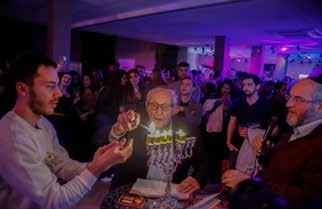
Continuing on this theme of survival and memory, candle lighting was led by Holocaust Survivor Manfred Goldberg, who addressed participants with inspiring words of resilience, hope and Jewish pride.
It was “light up the nights” on the 20th anniversary of our Public Menorah lighting 2024, this year between the Westcliff Muthu Hotel and Tower Court.
Over 500 people attended across the eight nights coming from a broad range of the Jewish Community of Southend. There were many menorahs attached to roofs of cars.
During the lighting, Rabbi Hyman paid tribute to the to the late Mrs. Barbara Newman(obm). A plaque was affixed in 2016/2017, in her memory, and whose inspiration it was to establish the giant symbolic Menorah overlooking the sea. The Menorah is sponsored by the Harris family in honour of late members Adrienne and Jeffrey Harris (obm).
SWHC Rabbi Geoffrey Hyman thanked the CST volunteers and the police for keeping us all safe.
It was a vibrant Chanukah for so many Jews who live in the area to gather and express their pride in their Jewish identity. It also underscored the great relations Southend and Westcliff enjoy with Southend Borough Council, who all those
years ago, gave us permission to have the Menorah erected.
Children helped light the Menorah. Each night was sponsored and everyone was chomping on the doughnuts as they sang the blessings and Chanukah songs.
SWHC `S much-anticipated traditional Gala night was on the 5th night and as usual, dignitaries, included the Mayor, Councillor Ron Woodley and Deputy Mayor Councillor Nigel Folkard. As is customary, the members and guests were looked after by the police who were in attendance, and CST, plus independent security guards who all joined the proceedings for the lighting and also reconvened in the shul hall.
There was a lovely spread of donuts, sandwiches, biscuits, and warm drinks prepared by our Ladies Guild. The guests mingled and revelled in the warm atmosphere for which SWHC is famous.
Chairman Dennis Baum welcomed everyone and thanked one and all for their “dedication” ensuring Chanukah was a resounding success.


Our mission is to make property ownership and renting a seamless and rewarding experience. Whether you're a landlord seeking peace of mind or a tenant looking for a well-managed home, we provide a full range of services to support every stage of the property management process. Here’s a closer look at how we handle property management from start to finish, along with the specific services we offer.
1. Property Onboarding and Marketing The process begins with a thorough property onboarding, where we ensure your property is fully ready to be placed on the market.
Our services include: Property Assessment: We evaluate the property’s current condition and suggest any needed repairs or improvements to maximize its rental value.
Professional Photography and Listings: High-quality images and detailed listings help your property stand out, attracting quality tenants. Strategic Marketing: We advertise on multiple platforms, targeting prospective tenants through online listings, social media, and local networks.
Finding the right tenant is crucial for a successful rental experience. We handle the entire screening process to ensure reliable and responsible occupants:
Comprehensive Background Checks:
We verify employment, check credit scores, contact previous landlords, and conduct background checks to ensure tenant reliability.
Lease Preparation and Signing: We prepare and manage lease agreements, covering all legal aspects to protect both landlords and tenants.
Move-In Coordination:
We ensure a smooth move-in process by completing an initial walkthrough and documenting the property’s condition with a checklist.

Our property management services include rent collection and transparent financial reporting to keep landlords informed and tenants accountable:
Automated Rent Collection: We use a reliable, user-friendly system for rent collection, minimizing delays and ensuring timely payments.
Financial Reporting: We provide monthly and annual statements with detailed breakdowns of income, expenses, and any maintenance costs.
Handling Late Payments: We manage any issues related to overdue rent, following legal procedures to ensure compliance and maintain professionalism.
Regular maintenance and prompt repairs are vital for tenant satisfaction and property upkeep. We oversee all maintenance tasks with a network of trusted contractors:
Routine Inspections: We conduct regular property inspections to identify any necessary repairs and ensure compliance with safety regulations.
24/7 Emergency Repairs: Our team is available around the clock to handle urgent repair needs, providing peace of mind to both landlords and tenants.
Preventative Maintenance: We schedule routine maintenance tasks, such as heating and plumbing checks, to avoid costly issues down the line.
Navigating regulations and legal requirements can be complex, but we handle all aspects of compliance for you:
Safety Compliance Checks: We ensure that properties meet all legal safety standards, including smoke detectors, carbon monoxide alarms, and emergency exits.
Legal Assistance: Our team stays up-to-date on property law changes and manages eviction proceedings if necessary, ensuring that landlords comply with all legal requirements.
Our services cover every aspect of property management, from initial tenant placement to ongoing maintenance and legal compliance. By working with us, landlords can enjoy the benefits of a well-managed property without the day-to-day hassle, while tenants gain access to a reliable, responsive support team. If you’re looking to make the most of your property investment or are seeking a better rental experience, contact us today.

Hampshire Heights are experts in HMO property management.

Dear Rabbi,
Why does Judaism place such a strong emphasis on earthly deeds and physical mitzvahs, rather than focusing solely on spiritual elevation and transcendent experiences?
Bryan
Dear Bryan
The Baal Shem Tov once said that he would rather be buried in the ground and return to the earth than rise to heaven in a fiery chariot like Elijah.
Why? Because through an initial dip downward, you can reach much higher. And the lower the dip, the higher the reach. So, if it seems to you at times that life is pulling you down, burying your soul in mundane, earthly matters rather than letting you soar freely to the heavens, know that in all these mitzvahs here on earth you are gaining the power and momentum to rocket upward beyond the heavens, higher than you could imagine. In the view from above, everything is always moving only upward.
Dear Rabbi,
Why do I find it so hard to be happy, even though I have so much to be grateful for? I have a lovely spouse wonderful children and a decent job. But I find myself always looking at other people; constantly noticing what’s missing or often wondering what could be better in my life. I know it’s a destructive attitude (and yes, I am aware of the teaching about being
satisfied with your portion in life). How can I get over this harmful mindset?
Belinda
Dear Belinda
Imagine that you are in a museum and are looking up at a beautiful, tiled ceiling made with thousands of tiles. As you glance around, you notice that one of the tiles is missing. Although the rest of the ceiling is perfect, where do you think your eyes will most likely focus? Upon that one missing tile! And that is what we human beings do. We tend to focus on what is missing instead of on what is present. On what is wrong instead of on what is right in our lives. This is what is otherwise known as the “missing tile syndrome.”
Even if we have a life filled with blessing, we often obsess on that which is missing to such an extent that it detracts from our day-to-day happiness. In fact, seldom do we realise that we all possess incredible riches, riches far exceeding all the combined treasures of the Forbes 500. It is simple math: Would you sell your healthy for five billion pounds? Add up your assets and you’ll find that you won’t sell what you possess for all the wealth in the world.
To put it differently, a wise mathematician said, “The hardest arithmetic to master is that which enables us to count our blessings.” We need to learn to focus less on the missing tile & more on the beautiful ceiling that makes up the mosaic of our lives.
So, whenever you find your thought process going in that direction, slow down and be patient with life. If you are looking for wealth, know that somebody
else somewhere is looking for health. If you’re looking for health, somebody else somewhere may have just passed away. Each time a new mansion of a house is sprung from the earth, somewhere, a new grave is dug below the earth. Each time you throw leftover food into a dustbin, somebody else somewhere is looking for a remnant of food to eat. For each smile on the planet there is a drop of tear in another place on the planet. For each celebration of childbirth, there are tears mourning a loss. Each time you drink a glass of water from your sink, remember somebody somewhere is using a basic pipe for the same purpose. So always be thankful. Think of the goodness you have, rather than the vanities you long for.

Dear Rabbi, My husband and I seem to disagree on things these days. He wants the temperature on the thermostat turned down and I want it turned up. He insists on closing lights everywhere and I like brightness and to keep them on. It’s exhausting! Is it normal to argue about these things?
Hot and Cold
Dear Hot and Cold Ah, the thermostat wars - a tale as old as time! You’re not alone. Couples across the centuries have fought over far sillier things. (I hear Adam and Eve couldn’t agree on apple pie vs. cobbler.)
Disagreements are perfectly normal in any relationship. In fact, a little conflict means you’re both alive, opinionated,
and invested. The Torah teaches us that even our greatest ancestors had their tiffs. Think of Abraham and Sarah debating about Hagar - talk about awkward dinner conversations! But the secret is how you handle it.
First, remember this: you’re not enemies; you’re teammates. When you’re arguing over the thermostat, it’s not really about 72 degrees - it’s about feeling heard and valued. So, here’s my suggestion: compromise creatively. One night it’s his temp, the next it’s yours. If all else fails, buy him a sweater and get yourself a fan. Second, laugh about it. Humour is the ultimate relationship glue. Next time you argue about the lights, at least do so with quips like yelling out, “Oh my G-d, let there be light!”
Here’s hoping you can keep the temperature of your arguments down and wishing you much warmth in your relationship, (but not too much).
For the first time, LSJS (the London School of Jewish Studies) are providing the community with the opportunity to go on a meaningful trip to Poland, to explore Jewish life, art, memory and history before, during and after the Holocaust. LSJS, the home of thoughtful and academic adult Jewish learning, offers a unique insight into the thriving Jewish life in pre-war Poland, where Jews comprised 10% of the population. Participants on the trip will explore centuries of joy,
beauty and tradition by visiting magnificent synagogues and significant Chassidic sites, whilst also gaining an understanding of modern Jewish life in Poland.
The trip is ideal for those looking for an intellectually stimulating and engaging journey, the pre-trip educational sessions will provide context enabling participants to arrive in Poland prepared for what they will encounter, ready to get the most out of the experience.

The multi-city trip, from 23-26 March, will be led by expert tour guide and LSJS Head of Adult Education Michael Rainsbury and Rebbetzin Ilana Epstein, member of the senior rabbinic team at Western Marble Arch Synagogue and educator for the Holocaust Education Trust and March of the Living,
who will focus on art in the Holocaust. This unique four-day visit will be an opportunity to visit less-explored places with time to discuss sites and themes in more depth.
“My love of exploring Jewish Poland comes from a desire to gain a glimpse into an entire civilisation of Jewish life, scholarship and great personalities, which the Nazis tried to erase but we will continue to remember,” said Michael Rainsbury. “Learning about the Holocaust is a modern-day equivalent of learning about slavery in Egypt – and by standing in the places where things happened, hearing testimonies and meditating on past events, we take time to honour the memory of the countless Jewish victims of Nazi terror.”
Although this is LSJS’ first trip to Poland, their expert educators and tour guides have previously led multiple trips to the country and have extensive experience in teaching about the Holocaust. In a unique feature of this trip, Rebbetzin Ilana Epstein will expound on the
annihilation of European Jewry through interpreting art from Holocaust victims and survivors.
“This is a rare opportunity to experience an unforgettable journey. Together we will bring Jewish life, memory, and history to life through immersive learning. Participants will discover profound stories of resilience and tradition before, during, and after the Holocaust”, said Rebbetzin Ilana Epstein.
“We are proud to be offering the community such a fantastic opportunity to visit Poland for the first time,” said Joanne Greenaway, Chief Executive of LSJS. “Our expert educators will make sure participants have an educational and meaningful trip that will stay with them for years to come.”
The trip includes four-star accommodation, with all meals included. Places are limited so be sure to reserve your place now to avoid disappointment.
To register your interest and to find out more, email michael.rainsbury@lsjs. ac.uk or call 020 8203 6427.
BY RABBI MOSHE TARAGIN
On Friday nights, as the sacred calm of Shabbat descends, a timeless ritual unfolds in Jewish homes worldwide: parents bestow berachot upon their children. These moments, solemn and tender, weave a tapestry of love and tradition that has graced countless Shabbat tables. The berachot are a cherished cornerstone of the Shabbat experience.
Though the words of these berachot vary slightly across different traditions, one pasuk has become universally beloved: “Yesimcha Elokim K’Ephrayim U’Menashe- May Hashem bless you like Ephraim and Menashe.” This berachha echoes the heartfelt words spoken by Ya’akov to Yosef’s children as he prepared to leave this world. By invoking this verse, parents bestow upon their own children the same boundless berachot that Ya’akov offered to his grandchildren.
Ya’akov’s delivery of berachot was a moment brimming with unimaginable joy. Having assumed he would never again see Yosef, Ya’akov stood in awe, beholding not only his son but his grandsons as well. The depth of his elation poured into his words. By similarly blessing our own children we seek to channel some of that overwhelming joy and hope into their lives.
It is both fascinating and deeply symbolic that parents bless a child with words first bestowed upon a grandchild, not a child. Evidently, the berachha of a grandparent carries an iconic resonance, stretching across the highway of Jewish history.
Sefer Bereishit is often marked by familial discord—brothers at odds, wives in rivalry, and relationships fractured by jealousy and strife. Finally, in this tranquil moment prior to Ya’akov’s death, we encounter a rare and luminous moment: three generations united under one roof, bound by shared purpose and harmony. This scene stands as a powerful emblem of the familial unity that had remained so elusive throughout Bereishit.
Therefore, by invoking the berachha of a grandparent and offering it to our own children, we yearn for similar strength of family connection. By citing Ya’akov’s berachha we recreate that fleeting moment of multigenerational peace and shared destiny.
Like his father Ya’akov, Yosef also achieves closure through multigenerational harmony. Hated by his brothers, sold into slavery, and later persecuted in Egypt, Yosef endured an odyssey of pain and anguish.
His own redemption is not encapsulated by his rise to political power or the glory of his position. He himself, dismisses his fame as incidental, recognizing it as merely a strand in the greater tapestry of divine providence. Additionally, his stature and influence diminish. As his story draws to its close, he is no longer the
commanding figure who once held sway over Egypt. He is an aging man, acutely aware of his mortality and powerless to ensure his own burial in Israel. This man, who once orchestrated the fate of nations, now relies on his brothers and the flow of history to fulfill his final wish. The political clout and public recognition that once defined him are exposed as transient, a flower that blooms only to wither.
Yosef’s redemption is realized not in the grandeur of his political achievements but in the quiet joy of seeing not only his grandchildren but also his great-grandchildren, whom he lovingly helps to raise. The fractured family harmony that eluded him in his youth is restored in his golden years, as he witnesses the unity and continuity of his lineage.
These two scenes of connection and continuity—Ya’akov as a grandparent and Yosef as a great-grandparent—stand in contrast to the family discord that pervades so much of Bereishit. The narrative concludes with these grandparental moments, highlighting the enduring power of family unity and harmony.
One might expect the Sefer Bereishit to focus on theology or philosophy—to delve into the mysteries of creation and humanity’s discovery of the divine, or to outline directives for moral conduct and conscience. Instead, this foundational book centers almost entirely on family. It chronicles the dynamics between husbands and wives, brothers and sisters, and parents and children. Evidently, family relationships are not just the backdrop of our lives but the foundation of our connection to Hashem.
Though Hashem is not human and transcends human experience, we are called to overlay the emotions of our family relationships onto our bond with Him. While He is not a literal parent, we are asked to revere Him as a Father, bringing to this relationship the same depth of love, respect, and trust we offer our parents. Though not a spouse, He is our divine partner, and we are invited to approach Him with the same commitment and emotional intensity such a bond demands. Family relationships serve as the emotional framework for our relationship with Hashem. Additionally, family relationships teach us the core moral values that define religious life: love, compassion, sacrifice, loyalty, honesty, trust, companionship and cooperation. These timeless lessons, nurtured within the family unit, are the cornerstone of spiritual identity and divine service.
Two foundational mitzvot play a pivotal role in strengthening family ties within Judaism. The first is the observance of Shabbat, which mandates a weekly cessation of activities, naturally creating space
for family interaction. In particular, the prohibitions against travel which are seminal to Shabbat ensure that families cannot simply drop by for a brief visit and leave; in many cases, they are bound together for a full twenty-four hours. Every few years, families must live together for three consecutive days, a requirement that forces individuals to practice sacrifice and compromise in order to maintain familial harmony.
Additionally, the mitzvah to honor parents solidifies the structure of the family. By honoring those who have sacrificed to build and nurture the family, we reinforce the values that underpin family life.
Throughout our long exile, devoid of national identity and culture, it was the core nucleus of Jewish families and communities that provided the strength and endurance to survive. These intimate bonds, nurtured by these mitzvot, have been the anchor that has kept the Jewish people steadfast in the face of immense challenges.

The two grandparental scenes at the conclusion of Bereishit emphasize the profound significance of Jewish family life. Borrowing the berachha of a grandparent each Friday night serves as a weekly expression of hope, a heartfelt aspiration to maintain family harmony as we journey through the trials of Jewish history.
Our return to Israel represents the greatest endeavor of family reconstruction in history. Scattered across the wilderness of time, our family is now engaged in the painstaking process of reuniting. This past year has witnessed vicious attacks on our national family, and has left countless families personally traumatized. Tragically, many families still await the return of their loved ones, held captive by the brutal hands of Hamas.
In defending our family in Israel, grandparents have played an instrumental role. Many took up arms, with some even serving in reserve units comprised of men in their 50s and 60s. Grandparents stood on the front lines of volunteer efforts, supporting soldiers and fortifying the home front. In countless cases, they were forced to step back into the role of parents, caring for grandchildren while their own children valiantly defended our
country. Throughout this war, grandparents have emerged as the underrated and silent heroes of our nation’s struggle. This week, as you bless your children with the timeless words of a grandparent’s blessing, take a mental moment to honor these grandparents. Remember those whose unwavering efforts sustained us and feel the anguish of those whose hearts have been shattered by the pain of this war.
And finally, when you bless your children with the blessing of a grandparent, reflect on your own grandparents, who could only dream of the privilege we now hold—to live freely and autonomously in our own land, defended by our own army.
This is the Shabbat of grandparents. We are all descendants of our past and ancestors of our future. We are bound together by the enduring legacy of those who came before us and the hopes of those who will follow. We have been summoned by the past and the future to stand tall at this moment of history. G-d knows we haven’t disappointed either.
The writer is a rabbi at the hesder pre-military Yeshivat Har Etzion/Gush, with Yeshiva University ordination and an MA in English literature from the City University of New York. His most recent book, Reclaiming Redemption: Deciphering the Maze of Jewish History (Mosaica Press), is available in bookstores or at www.reclaimingredemption.com.
BY RABBI SHAUL YONATAN TAWIL
As we complete the first book of the Torah we are left with a subconscious message hinted throughout the Parasha.
It all begins with the name of this week’s Parasha – Vayechi.
In essence the Parasha relates Yaakov’s last years and final blessing to his children. After passing away and a national mourning, Yaakov is taken up to Eretz Yisrael to be buried. Thereafter the children of Israel return to Egypt, where they continue to flourish. At the end of the Parasha we are told about Yosef gathering his brothers and asking them to ensure his remains will be taken up to Israel at the time of the exodus. They concur and we end the book of Bereishit with the passing of Yosef. There are two Parshiot in the Torah that are called with reference to life. The first is Chayei Sarah – the life of Sarah, and the second is this week’s Parasha – Vayechi (and he lived).
It seems strange that that the two Parshiot which seem to talk about death are the ones that are named with life? Is there a connection?
Our Sages teach that we should bless G-d one hundred times a day.
(See Shulchan Aruch, Orach Chaim 46:4, 284:4, 290:1).
Unfortunately sometimes due to habit, we miss out on the beauty found within so many of our blessings.
The aim is to constantly recognise Hashem in everything we do.
Metim Berachamim, Melech Memit Umechaye, Neeaman Ata Lehachayot Metim, Baruch.. Mechayeh Hametim)
Why the repetition?
The Gemara Avoda Zara 5a mentions that there are four types of people that although they are alive, nevertheless are considered dead.
The first is a poor man.
The Torah relates that Hashem told Moshe that all the people that wanted him harmed had died (Metu Kol ha’Anashim). Our Rabbis explain that this refers to Datan and Aviram, who although were still alive, because they had lost their wealth, were considered dead.
The second is a blind person. This is learnt from a Pasuk which compares a blind man to dead “b’Machashakim Hoshivani k’Metei Olam”;
The third is a Metzora, one who has (spiritual) leprosy. After Miriam received Tsarat for speaking against her brother Moshe, Aharon defended her and asked “Al Na Tehi (Miryam) ka’Met”; Please don’t let Miriam be like a dead person.
The fourth category is a childless person. This is learnt from Rachel’s request from Yaakov to have children “Havah Li Vanim v’Im Ayin Metah Anochi – grant me children otherwise I am (like) dead”.
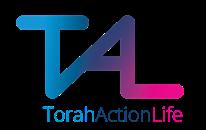
As part of our blessings in the silent Amida there is a special blessing where we praise G-d for being Mechayeh Hametim – resurrecting the dead. Have you ever noticed how many times within that blessing the words relating to life and death are mentioned?
Although we say this blessing three times a day, many people have not noticed the seemingly repetitive theme of Techiyat Hametim within the blessing. In total this is mentioned five times! (Mechaye Metim Ata, Mechayeh
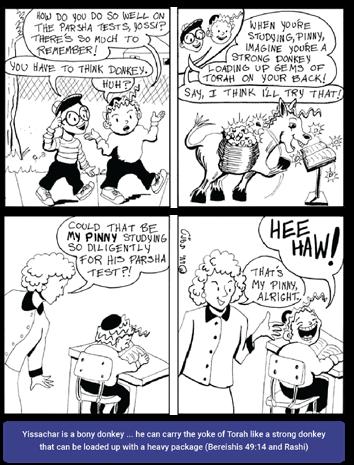
We all yearn for the Messianic era daily where eventually we will witness ultimate physical and spiritual bliss. All will be healed. The blind, the deaf and the dumb, the lame, whosoever has any blemish or disability, shall be healed from all their disabilities: “The eyes of the blind shall be clear-sighted, and the ears of the deaf shall be opened… the lame shall leap as a hart and the tongue of the dumb shall sing…” (Isaiah 35:5-6). Death itself shall cease, as it is said, “Death shall be swallowed up forever and G-d shall wipe the tears from every face…” (Isaiah 25:8) There will be a life of ease. Our physical needs will be taken care of by others, as it is said, “Strangers shall stand and feed your flocks and aliens shall be your ploughmen and your vinedressers.” (Isaiah 61:5)
The time will come when G-d resurrects the dead. But which ‘dead’ will be resurrected.
Our daily blessing of Mechayeh Hametim is teaching us that all these four categories of ‘dead’ people will be resurrected. Those that are childless will bear children, there will be no poverty, no lepers and all will be able to see. The fifth and final reference to resurrecting the dead refers to the real dead that have passed away
passed away and the Torah relates, “Avraham came to eulogize Sarah and li’vkotah/to cry for her.” (23:2)
In the Torah, the word “li’vkotah” is written with a small letter “kaf”. In this way, the Torah tells us that Avraham did not cry or mourn excessively for his wife Sarah.

R’ Ovadiah Yosef Z’l explained that our patriarch Avraham was a prophet. When Sarah died, Avraham knew that she was in Gan Eden with other righteous people who had died. Since the sages teach, “One hour in Olam Haba is more worthwhile than all life in This World/ Olam Ha’zeh,” Avraham had no reason to cry. Thus his mourning was not excessive.
Then why did he cry at all? Only because of “what people would say.” In reality, though, we all should recognize that the deceased is in a better place. This is why we comfort mourners with the words: “Hamakom ye’nachem etchem . . .”/”May Hashem (who we refer to as “Makom” because He is everywhere) comfort you . . .” The word “makom” literally means “The Place” – thus we are saying, “May your knowledge that the deceased is in a good place comfort you.”
Sarah was the first mother of our nation and taught us this important message.
Hence Chayei Sarah – the life of Sarah teaches us that although she passed away, she lives on.
Perhaps it was taught yet again with Yaakov as he lived a life full of trials and tribulations and represented the Jew in exile. He saw beyond the pain, perceived beyond the troubles, because his life source was Hashem. Yaakov’s inextricable bond to the Almighty was an enduring quality, which he infused in his descendants throughout the generations. Vayechi Yaakov B’eretz Mitzrayim is the catchphrase for Jewish transcendence in the diaspora, for the almost daily confrontation with adversity and pain. This emotion comprises our generative force that keeps us strong and committed despite the overwhelming challenges which confront us at every turn.

being resurrected.
Thus what we think is the end is only a transition period. We are born, we live and pass on, but one day we have faith we will be resurrected.
For the righteous we have a stress on life particularly in the place that death is mentioned. Sarah lived a fulfilled life, she
Remember everything will be ok in the end, if it’s not, it’s not the end!
Shabbat Shalom
Rabbi Tawil is the Founder and Director of ‘Torah Action Life’ (TAL)


BY RABBI YEHOSHUA FASS
The opening verse of the parasha reads: “And Ya’akov lived in the land of Egypt for seventeen years” (Bereishit 47:28). Rashi, noting the absence of the usual pause or space between this verse and the previous one in the Torah scroll, comments that the parasha is “closed.” He explains that this “closure” symbolizes the imminent approach of Ya’akov’s death and the beginning of the Jewish people’s enslavement in Egypt. This moment marks a profound transition, as Ya’akov, fully aware of the hardships awaiting his descendants, takes one final opportunity to impart his vision for the future. He requests that his sons bury him in the Cave of Machpelah in Eretz Yisrael, a gesture laden with meaning.
Ya’akov’s last wish highlights a core truth – no matter where we may find ourselves, Eretz Yisrael remains our true home. In a time when incidents of antisemitism

1st Aliya (Kohen) –BERESHIT 47:28-48:9
Yaakov (Jacob) has been in Egypt for 17 years and is 147 years old. Knowing that he will soon die, he asks Yosef (Joseph) to take an oath to bury him in Cana’an (later Israel) in Me’arat Hamachpela (the Cave of the Patriarchs) where his forefathers are buried. Yosef promises. Yaakov becomes ill and Yosef visits him, together with sons Ephraim and Menashe. Yaakov tells Yosef that these two grandsons will be like the other tribes and will receive their own portion of the Land.
2nd Aliya (Levi) – 48:10-16
Yaakov’s sight is failing. Yosef places his younger son Ephraim to Yaakov’s left and his older son Menashe to
and violence against Jews are on the rise worldwide, many are increasingly looking to Israel as a place of refuge. Yet, it is crucial to recognize that while antisemitism is a serious and alarming threat, it should never serve as the primary motivation for making Aliyah. Aliyah is not simply a retreat from persecution or danger; it is a profound return to our roots – a spiritual and historical call that transcends adverse circumstances. Eretz Yisrael is our promised homeland, a place where our eternal bond to the land endures, irrespective of the challenges we may face in the Diaspora.
Ya’akov’s request to be buried in Eretz Yisrael teaches us that our connection to the land is one of purpose, faith, and identity. It is a recognition that Israel is not merely a sanctuary but the heart of the Jewish people – the place where we are meant to be, where we must continue our mission as a light unto the nations, and where we are given the opportunity to thrive in full harmony with our
heritage.
The prophet Yeshayahu (60:8) paints two vivid images of the Jewish return to the land: “Who are these that fly along like clouds, like doves to their nests?” This verse captures two forms of return. Sometimes, external forces and tumultuous conditions compel the Jews to return, like clouds swept by the wind. However, the ideal return is depicted as a dove, drawn not by outside forces but by an innate longing, a deep, personal yearning to return home. It is not an escape, but a conscious, heart-driven choice to return to one’s rightful place.
While Israel does indeed offer refuge from the dangers Jews may face in other parts of the world, our connection to the land must be driven by a more profound desire – a love for Israel, a yearning to live fully as Jews in the land of our ancestors, and a commitment to contribute to the flourishing of the Jewish state. The decision to make Aliyah should be motivated by a positive, proactive yearning

to engage in the ongoing story of the Jewish people in Eretz Yisrael, to be part of its bright future, and to help shape its destiny.
As we confront the challenges of rising antisemitism and uncertainty across the globe, let us not view Eretz Yisrael merely as a refuge in times of crisis. It is the very heart of our identity and the land where we are destined to fulfill our spiritual and national mission. May we draw inspiration from Ya’akov’s final words, which serve as a reminder that our connection to Israel is central to who we are. For those able to do so, let us consider Aliyah not as an escape from hatred but as a profound return to our true home.
Rabbi Yehoshua Fass is the Co-Founder and Executive Director of Nefesh B’Nefesh. He is a member of the Mizrachi Speakers Bureau (www.mizrachi.org/speakers).
Yaakov’s right. However, Yaakov crosses his arms, putting his right hand on Ephraim’s head and his left hand on Menashe’s head. He blesses them with his hands in this position.
3rd Aliya (Shlishi) – 48:17-22
Yosef tries to switch Yaakov’s hands back but Yaakov resists. He tells Yosef that Menashe will be great, but Ephraim will be greater still. Yaakov tells Yosef that God will eventually bring the people back to Cana’an.
4th Aliya (Revi’i) – 49:1-18
Yaakov gathers together his sons to deliver a final message to them. Following Rashi’s commentary: Reuven is criticised for behaving impulsively; Shimon and Levi are criticised for aggression; Yehuda is given a leadership
role; Zevulun will be successful as a sea merchant; Yissachar will bear the ‘yoke’ of Torah learning and Dan will be as great as Yehuda.
Point to Consider: Why did Yaakov pray for God’s help whilst blessing Dan? (see Rashi to )49:18
5th Aliya (Chamishi) – 49:19-27
The tribe of Gad’s battalions will fight wars successfully. Asher will receive a fertile portion of land and prosper, as will Naftali. Yaakov praises Yosef for overcoming his many challenges.
6th Aliya (Shishi) – 49:28-50:20
Yaakov hints that King Shaul (Saul), Mordechai and Esther will descend from Binyamin. Yaakov reiterates his

burial instructions to his children and then dies. Yosef falls on his dead father in tears.
Yosef instructs doctors to embalm Yaakov. This process takes 40 days, followed by 30 days of the Egyptians mourning Yaakov’s death (Rashi). Yosef asks for permission from Pharaoh to bury his father in Cana’an. Pharaoh grants permission and sends a large entourage to accompany Yosef and his relatives. The brothers observe seven days of mourning (shiva). Yaakov’s sons bury him in Me’arat Hamachpela. Yosef reassures his anxious brothers that he is still at peace with them.
7th Aliya (Shevi’i) – 50:21-26
Yosef commits to providing food for his brothers and their families. He makes them take an oath to take his bones out of Egypt when the nation eventually leaves. Yosef dies, aged 110. He is embalmed and placed in a coffin. This concludes the Book of Bereishit.
King David, about to die, entreats his son and successor Shlomo (Solomon) to stay faithful to the ways of the Torah. His final request is for Shlomo to make sure to punish Yoav and Shimi Ben Gera for their rebellious behaviour.
After Jacob has lived in Egypt for seventeen years, he feels his days on earth are ending. He calls Joseph to his side and asks him to promise that he will bury him in the land of Canaan where Abraham and Isaac are buried. Jacob then blesses Joseph’s sons, Ephraim and Menasseh, that they will each become the father of a tribe, just like Jacob’s sons.
Jacob then calls all of his sons to his side and blesses each one. He tells each son what his role will be as one of the Tribes of Israel. For
example, he says that the tribe of Judah will produce kings, and Dan will produce judges. Naphtali will be swift as a deer and Benjamin fierce as a wolf.
When Jacob is finished blessing his children, he passes away. He is 147 years old. Joseph cries and mourns his father as do his brothers and all of the people of the land of Egypt. They mourn Jacob because he was a righteous person who brought a lot of blessing to the land. Joseph keeps his promise to his father and

brings him to the land of Canaan and buries him in the Cave of Machpeila in the city of Hebron. The sons of Jacob are worried that now that Jacob is no longer alive Joseph will take revenge on them for selling him into slavery. But Joseph comforts them and tells them he is not planning to do anything against his brothers. Joseph dies at the age of 110. Before passing away, he gives a message to the people of Israel, telling them that “G‑d will surely remember you, and bring you
up out of this land to the land of which he swore to Abraham, to Isaac, and to Jacob.” He asks that his body be brought out of Egypt with them.
Joseph’s body is not buried in the land of Canaan yet. (The Egyptians do not let the Jewish people take him out of Egypt.) With this Parshah we conclude the first book of the Torah, the book of Bereishit.
Number of Verses - 85
Number of Lines - 148
Number of Words - 1,158
Number of Letters - 4,448
Last week’s answer: Which Mitzvah is performed on Wednesday or Thursday only?
The answer is:
The answer: Eruv Tavshilin. The Sages enacted Eruv Tavshilin as a way of beginning Shabbat preparations Thursday, thus allowing you to continue preparing on Yom Tov itself. Essentially, Eruv Tavshilin means setting aside two food items -- one baked and one boiled -- in preparation for Shabbat. When a two-day Yom Tov falls on Thursday and Friday, the Eruv Tavshilin is set aside on Wednesday.
This week’s Question:
Which verse do we say every day in the prayers, that starts and ends with the same three words in the same order?
Using all the shapes, can you make the shape on the right?
The goal of a word wheel puzzle is to create as many words possible with the letters in the word wheel. Each word must contain at least three letters. You can only use each letter once and every word must have the letter in the centre of the wheel.
Last edition’s words
Here are some words you may have found from last week – you may have found more!
N T A I E A V C C
Use the area below to write the words you have found.
Q: What would bears be without bees?
A: Ears!
Q: How do you make an egg-roll?
A: You push it!
Q: Why did the bicycle fall over?
A: Because it was two tired!
Q: What did the triangle say to the circle?
A: You’re pointless!
What grows up while growing down?
What can go through glass without breaking it?
I speak without a mouth and hear without ears. I’m invisible, but you can call for me. What am I?

Dear Simon
How would you best suggest we prevent any phishing scams?
Mrs
D Ross
Dear Mrs Ross
One of the most common forms of cyber-attack is phishing emails. These are a threat to businesses as they are used to trick individuals into providing information to a hacker. These are disguised as regular emails with the intention of getting the user to click on a link, reveal their bank details or download an attachment. They enable the hacker to access information. Hackers can then sell that data to the highest bidder on the Dark Web. In the wrong hands, sensitive information such as credit card details could have severe financial implications for a business and/or their customers. Phishing emails are convincing. Hackers do everything they can to make you think that the email is from a legitimate source so that you trust them and hand over data. Here are a few simple tips to be aware of:
1. Look out for false, or unofficial domains or names that are not legitimate. For example, PayPal will email you from XXX@paypal.com (or .co.uk), but a phishing email could appear in your inbox from “PayPal”. One way to find out if this is a phishing email is to click on the name “PayPal” or just look at the email address it came from. Often, phishing emails come from fake domains that look like paypal@notice-access-update234. com or something equally illegitimate.
2. Look for spelling and grammar mistakes throughout the email and subject lines. Legitimate organisations are far less likely to make simple spelling errors.
3. Urgency - If the email creates a sense of urgency that you ‘must act now’ or implies a deadline to respond, victims are less likely to double-check the email but may just act immediately. Always Stop and think before you click a link or open an attachment.
AGENT
MARTIN FRYDENSON - ROUNDTREE REAL ESTATE
Roundtree Real Estate are your local experienced Estate Agent having been established on the High Street since 2009. We are both ARLA and NAEA Propertymark regulated and we are here to offer you expert advice in Property Sales, Lettings, Commercial and Full Management Services, covering Hendon, Golders Green, Finchley, Colindale and surrounding areas. We have built long standing relationships with all our clients and should you have any property related queries please do contact us.

Contact: 020 8203 2111 mail@theroundtree.com www.theroundtree.com
JACOB BERNSTEIN
A member of the APCC, specialising in financial services compliance for: Mortgage, Protection and General Insurance Intermediaries; • Lenders, Credit Brokers, Debt Counsellors and Debt Managers; Alternative Investment Fund Managers; E-Money, Payment Services, PISP, AISP and Grant-making Charities.

4. Training - Our top tip is to inform, train and educate every user. When you know what to look out for, you’ll learn how to prevent it in the future. Unfortunately, once it’s happened there’s not a lot that can be done. However, you can find out if you’ve been exposed by getting a free Dark Web Scan from Eurotek UK. We scan your company domain and provide a detailed report on any breaches that have previously been made and can help you put a cybersecurity plan in place to reduce your risk in the future.
Jewish Care is the largest health and social care organisation serving the Jewish community in London and the South East. Our vital services touch the lives of 10,000 people every week. We provide services and offer a wide range of support groups to older people, people with mental health needs, Holocaust survivors, people living with dementia, people with a variety of needs and carers support.

KOSHER DELI
Contact: 020 8922 2222 helpline@jcare.org www.jewishcare.org
Kosher Deli was established with the intention of making kosher meat and poultry affordable for all with the convenience of multiple locations and a comprehensive delivery service. All this without compromising on kashrus or quality.
Locations in: Golders Green, Hendon, Temple Fortune, Edgware, Borehamwood & Manchester

Contact: 020 8381 4450 info@kosherdeliuk.co.uk www.kosherdeli.co.uk


Contact: 020 7781 8019 info@richdale.co.uk www.richdale.co.uk
ALIYAH ADVISORS - GARY BROWN - PRACTICAL ALIYAH ADVICE

Book a FREE meeting with UKAA’s founder Gary Brown, who will go through your particular needs and wants on a the PRACTICAL side of leaving your country of origin and/or living in/moving to Israel. This is both for pre and post- Aliyah Olim.
This FREE meeting will allow Gary to advise on who you need to speak with for each requirement and when in the year you should approach them. Confidentiality assured.

Contact: +972 (0)2 372 3775 / +44 (0)20 3 989 5080 info@ukaliyahadvisors.com ukaliyahadvisors.com/providers/
STEPHEN MORRIS SHIPPING
With almost 40 years experience, our company has the ability to move household and personal effects and antiques and fine art with the professionalism and care that comes from that experience coupled with an attention to detail.
We construct our own Tri-Wall and wooden packing cases on site and employ full-time art installers and handymen for those ‘extra’ jobs that always need doing on a move or installation. And size is no limitation – we have moved trains, boats and planes across the world and even bridges and a 5,000 seater tent!

Contact: 020 8832 2222 info@shipsms.co.uk www.shipsms.co.uk

MARC OVITS – BA (HONS) APFS CERT PFS (DM)
Over 25 years of successful experience in financial services including 11 years of investment banking experience.
Offering expert independent financial advice to individuals, businesses, charities and trusts. Individual services:- Wealth Management, Investment, Retirement, Estate/IHT, protection planning, Tax Mitigation and Cash Management Solutions
Business & Charity services:- Investment Planning, Business Succession & Business Exit Planning, Business Protection, Corporate Pensions, Employee Benefits, Cash Management Solutions, Profit extraction strategies

Alpha Wealth Management Contact: 020 8203 6920 info@alphawm.co.uk www.alphawm.co.uk
SIMON MOSCOVITZ BSC (HONS) – EUROTEK UK LIMITED
We are a well-established and successful Managed I.T. Services Provider (MSP) with a clear sense of purpose. We plan, design and enable the procurement, implementation, protection and management of a wide range of modern technologies through an earned and trusted partnership with our clients across the UK. We enable our clients to be operationally efficient by successfully embracing their digital transformation journey.
• Why choose Eurotek UK?
Deliver > Manage > Automate > Secure > Backup

Contact: 0161 660 2745 hello@eurotekuk.co.uk www.eurotekuk.co.uk











